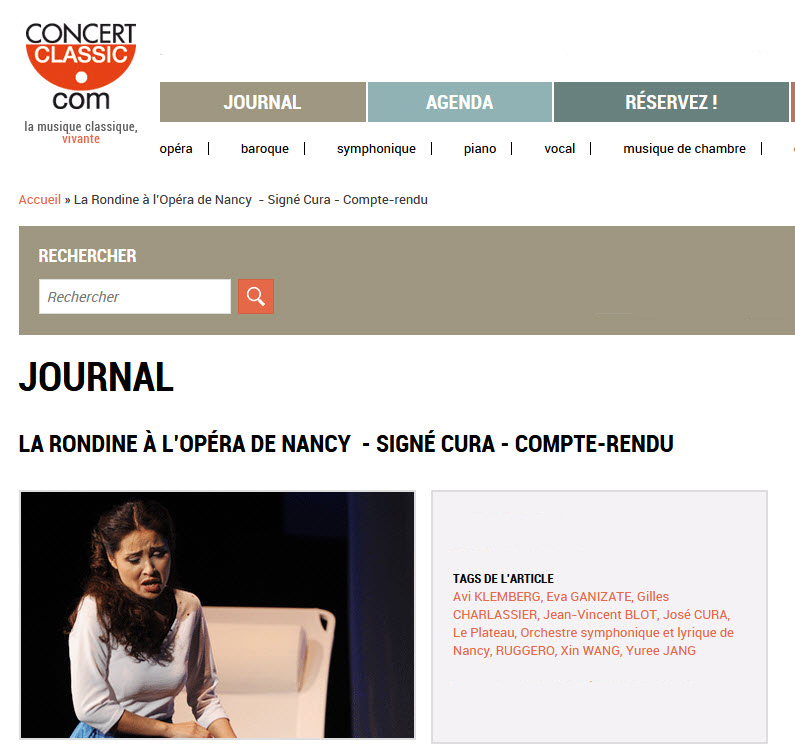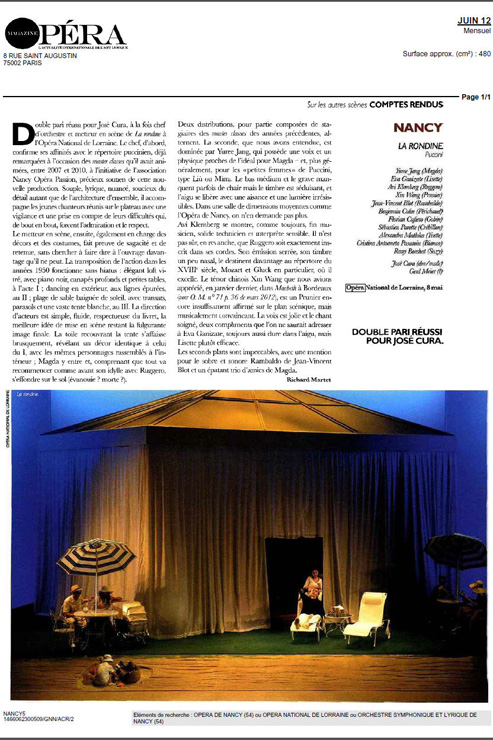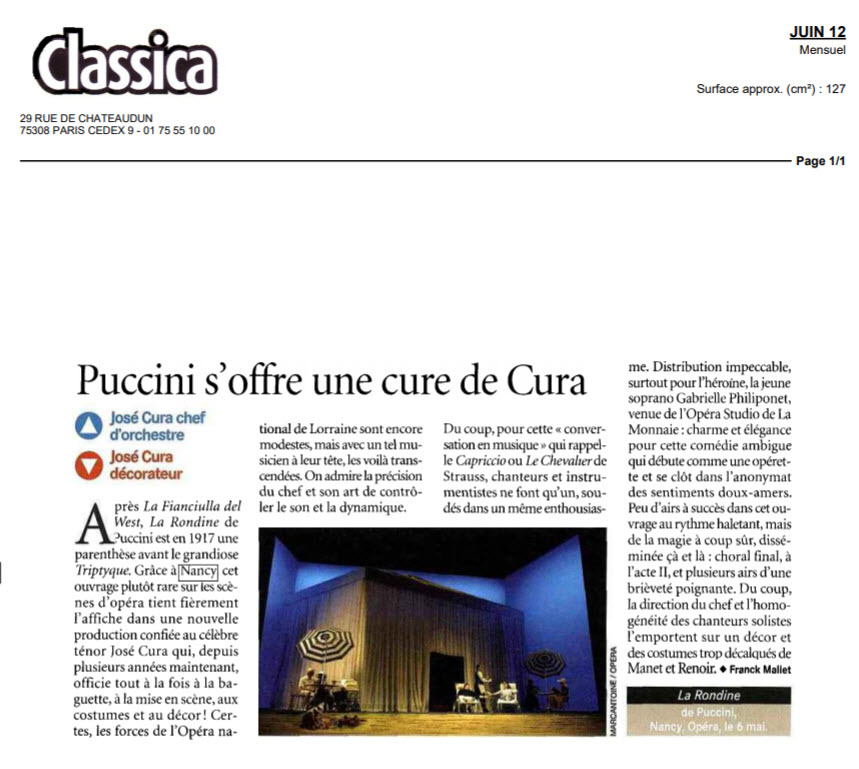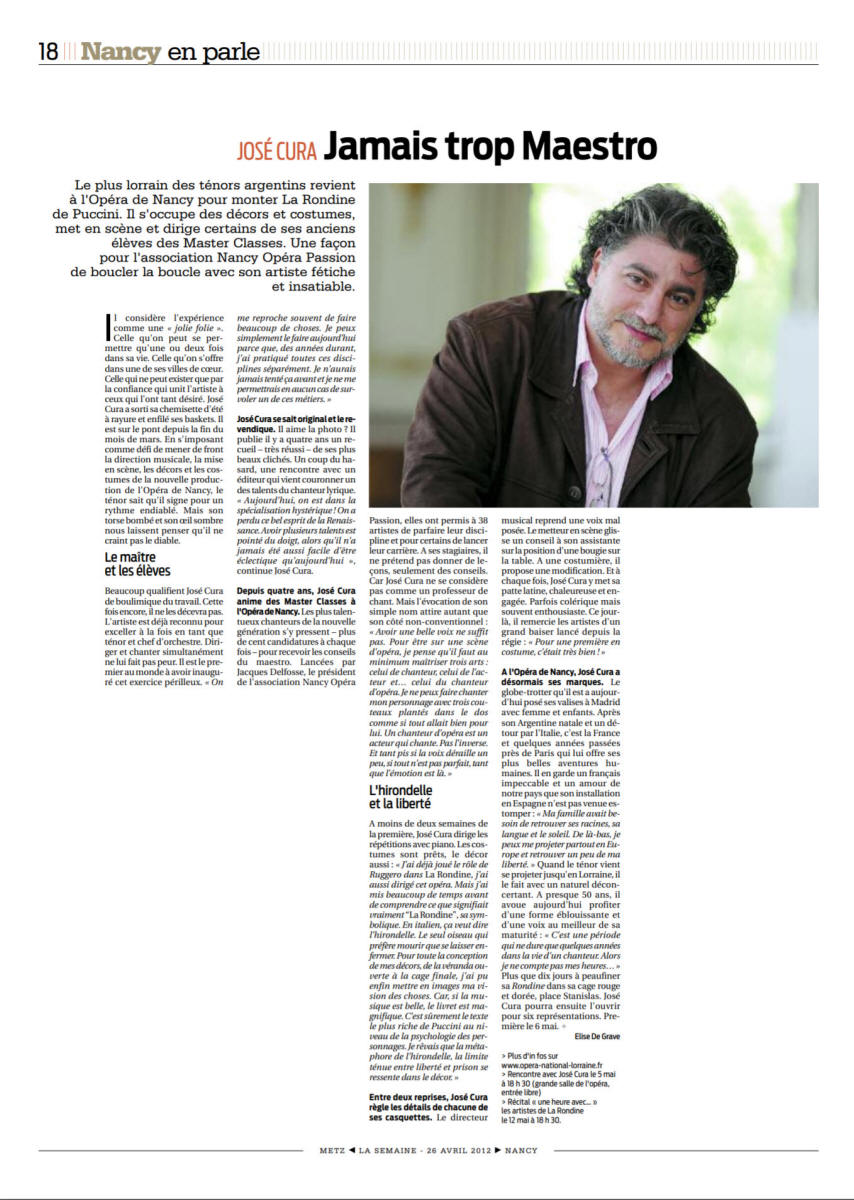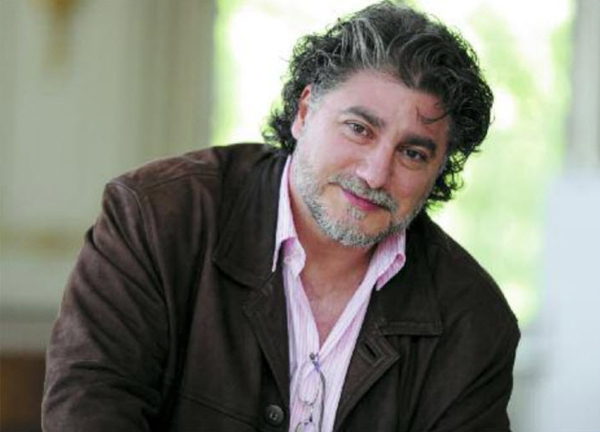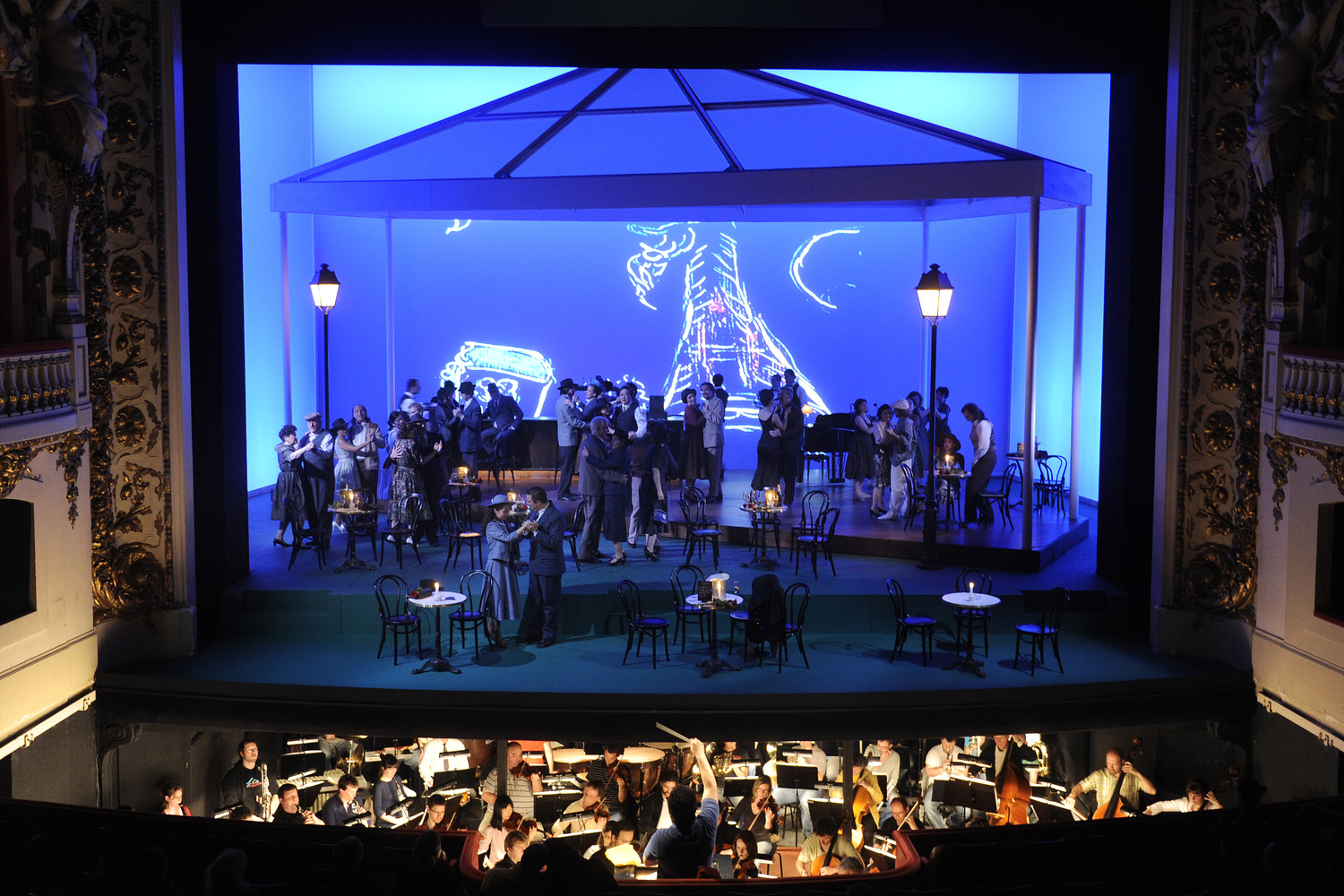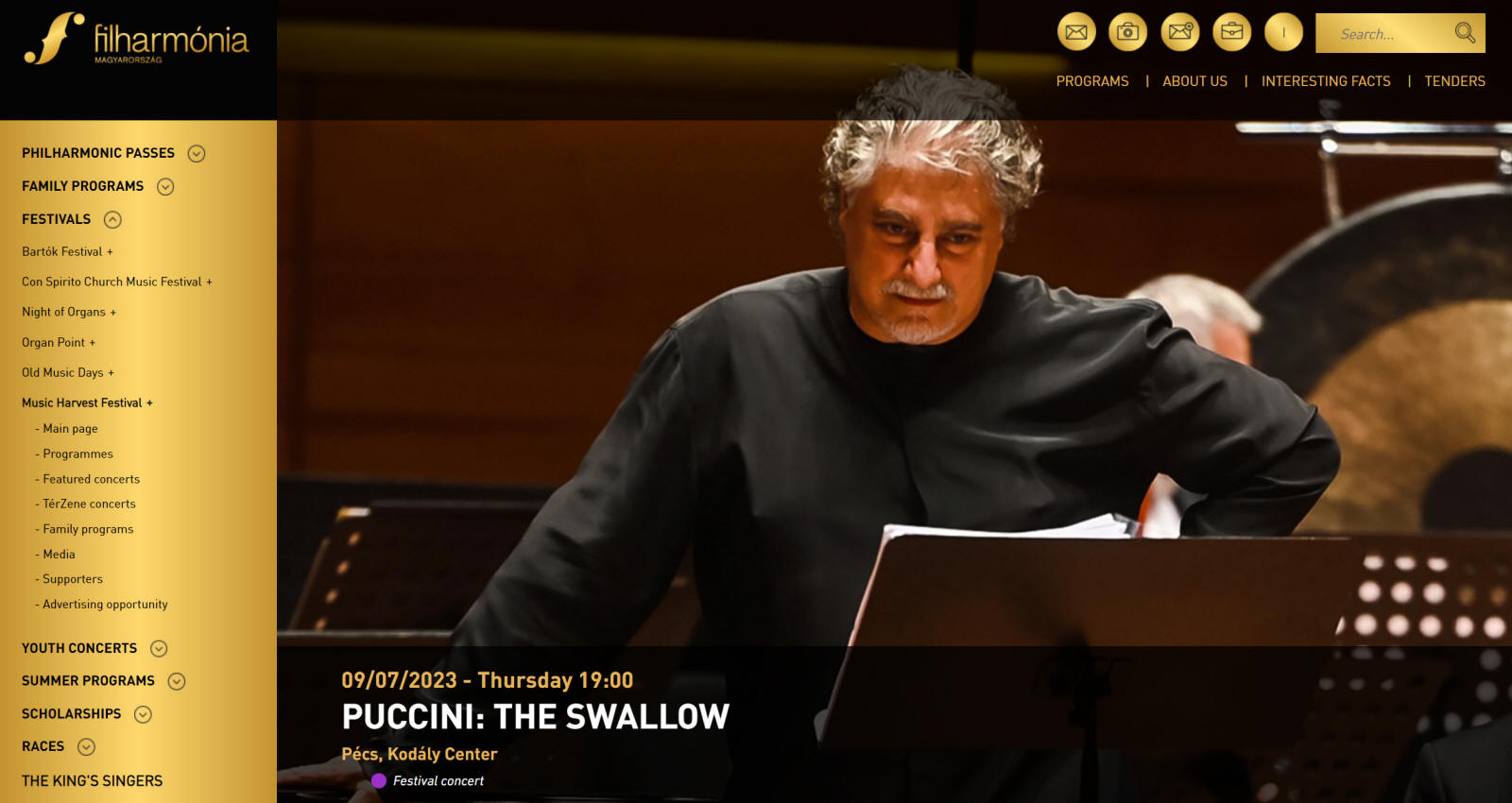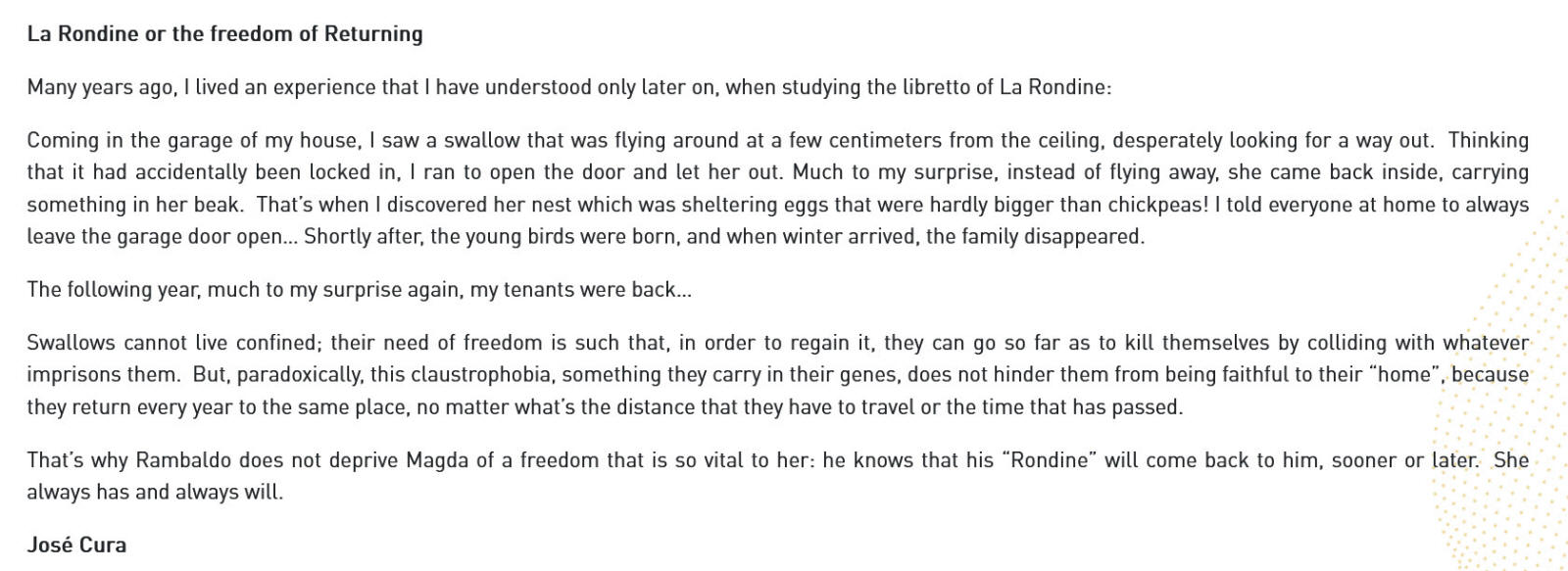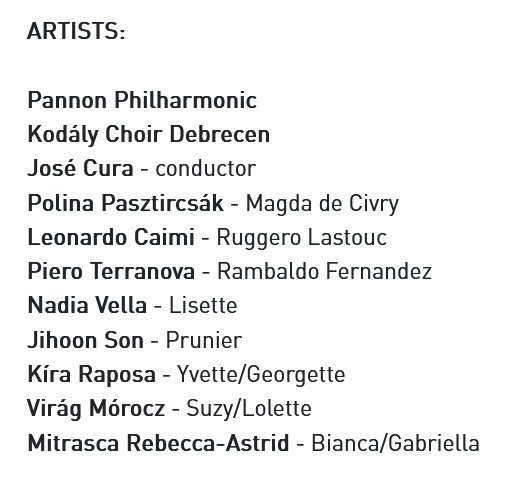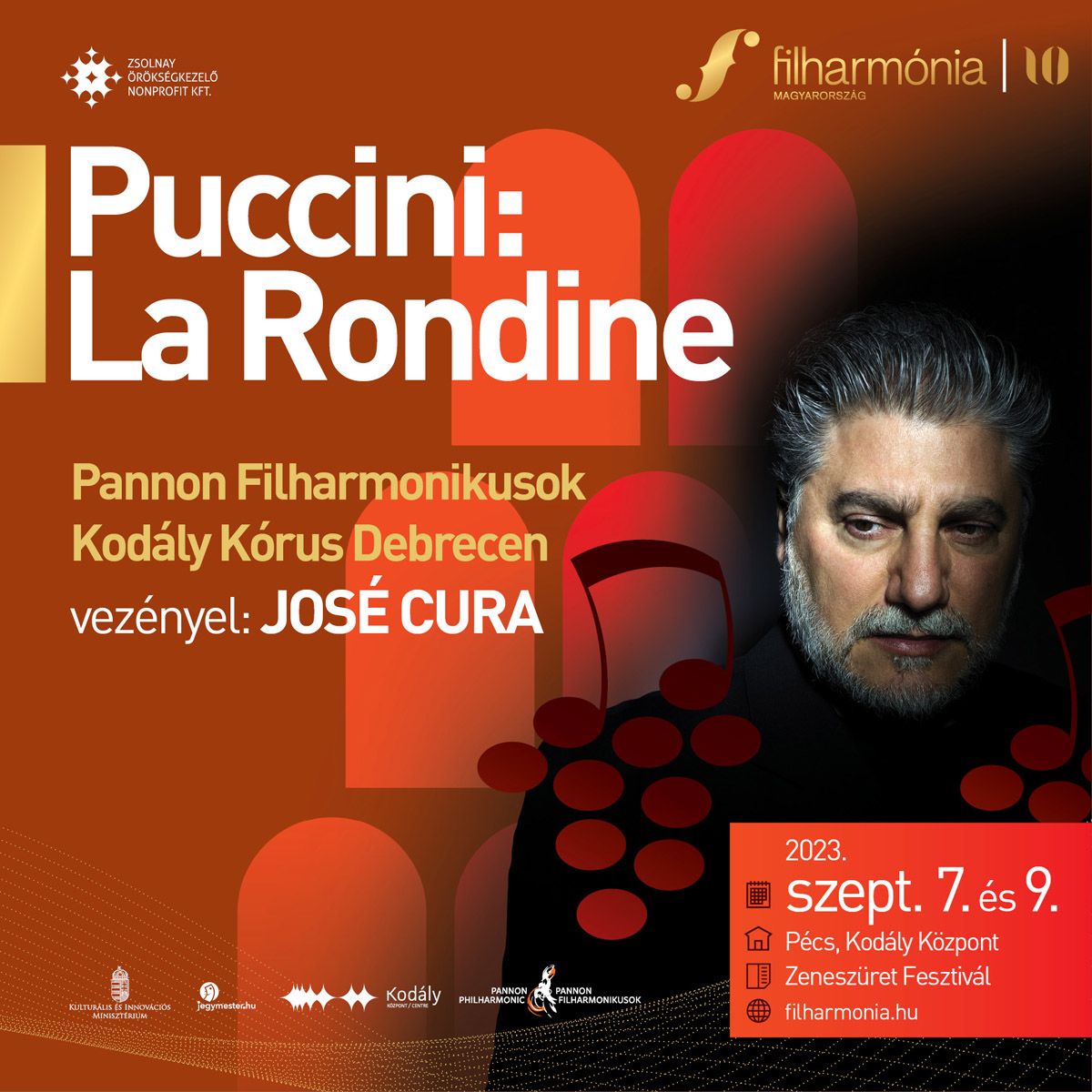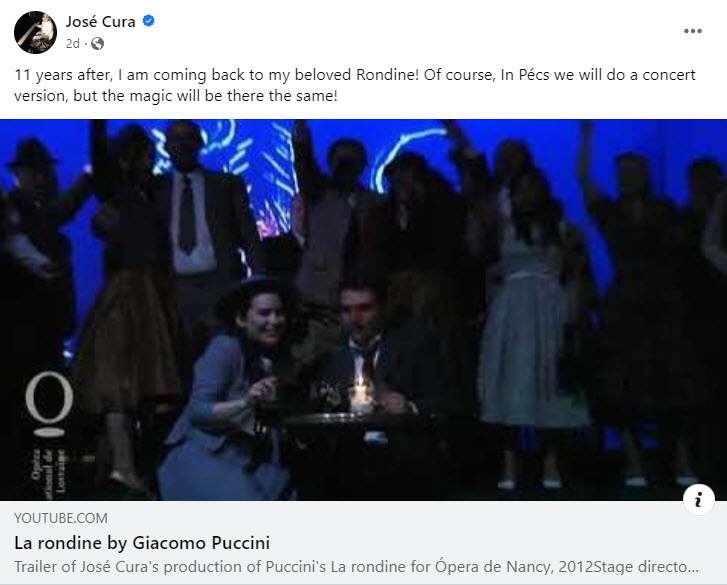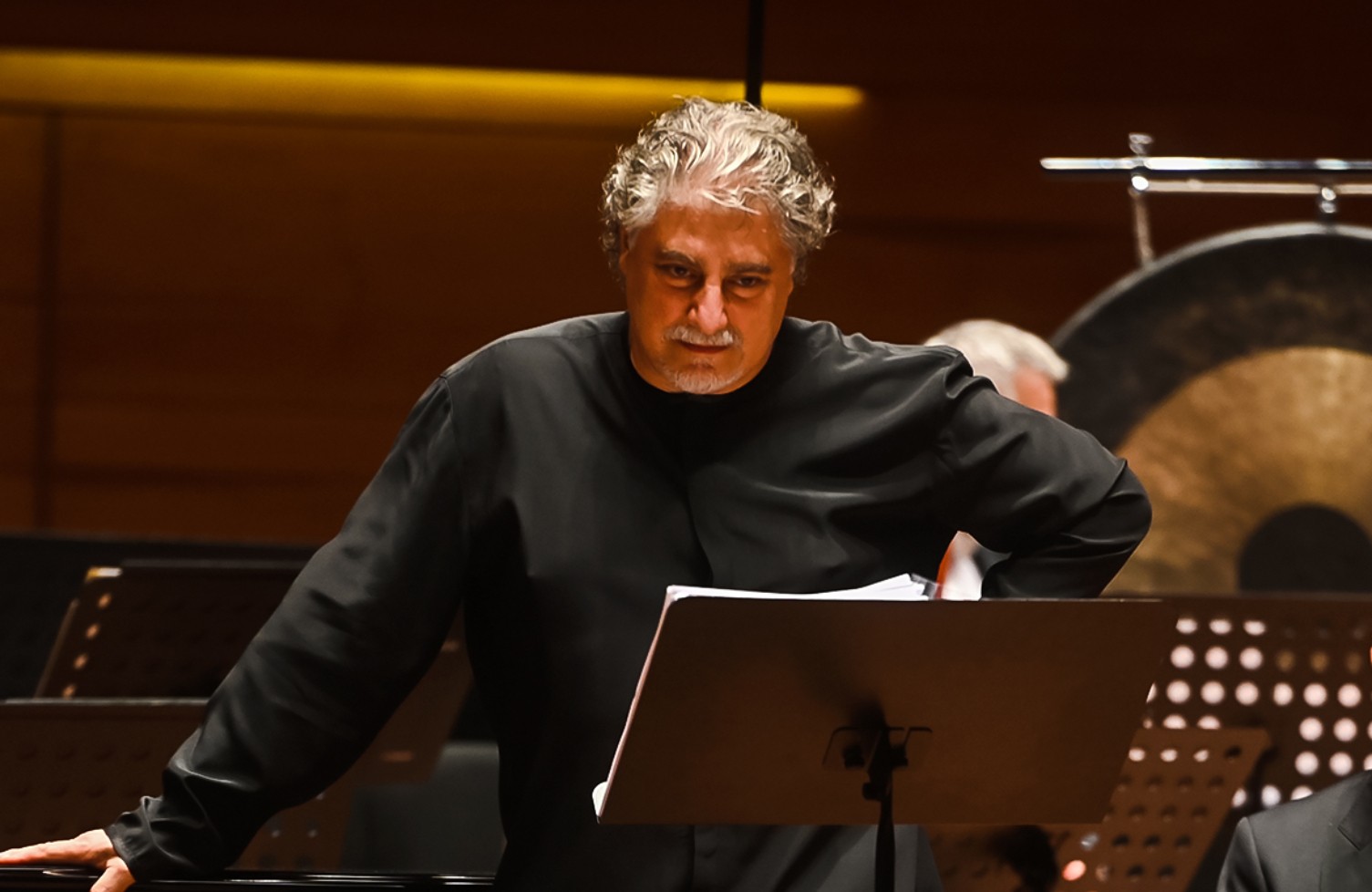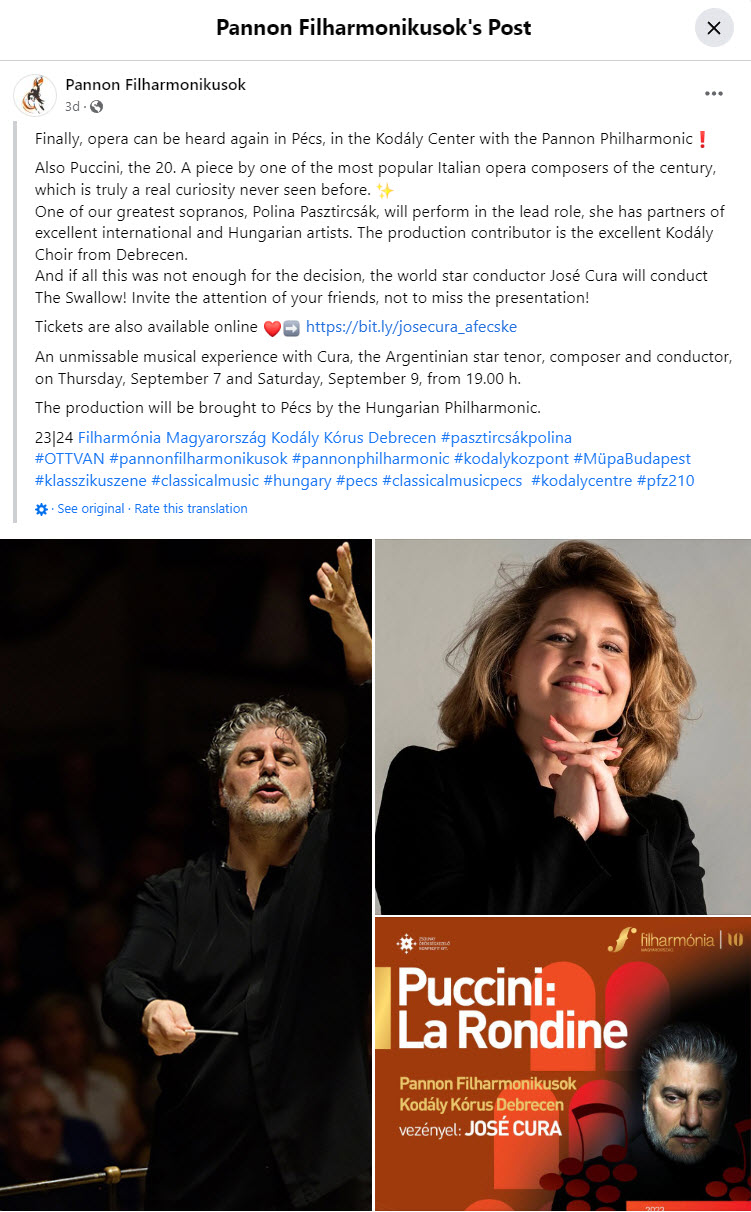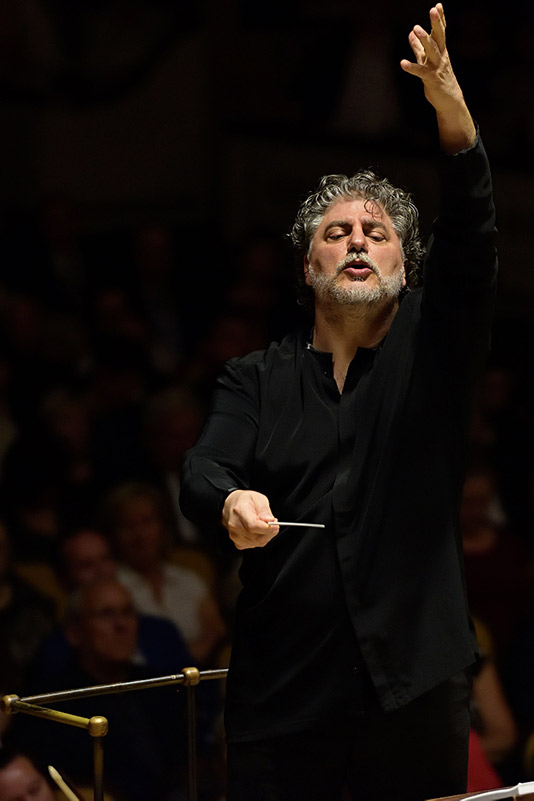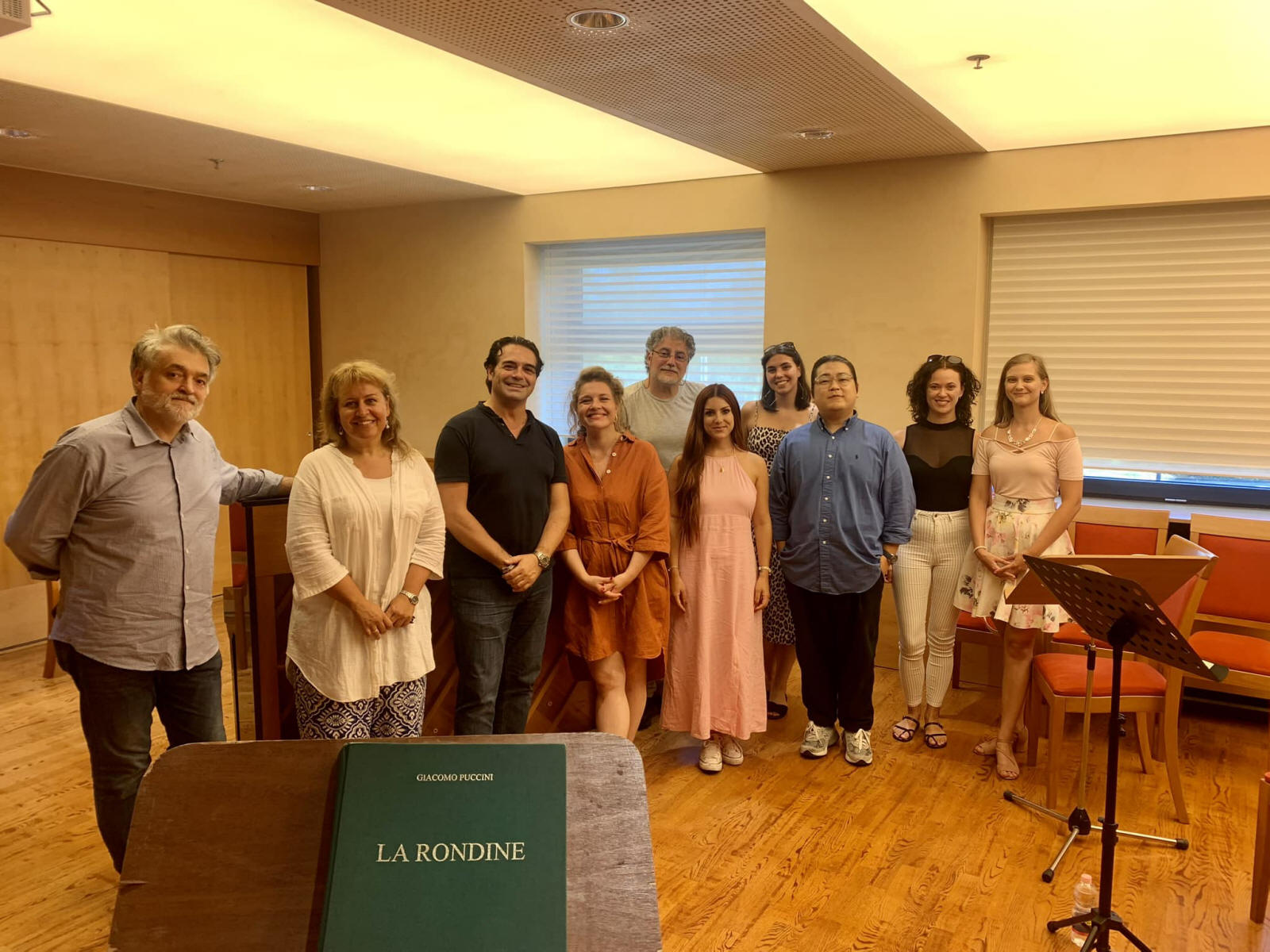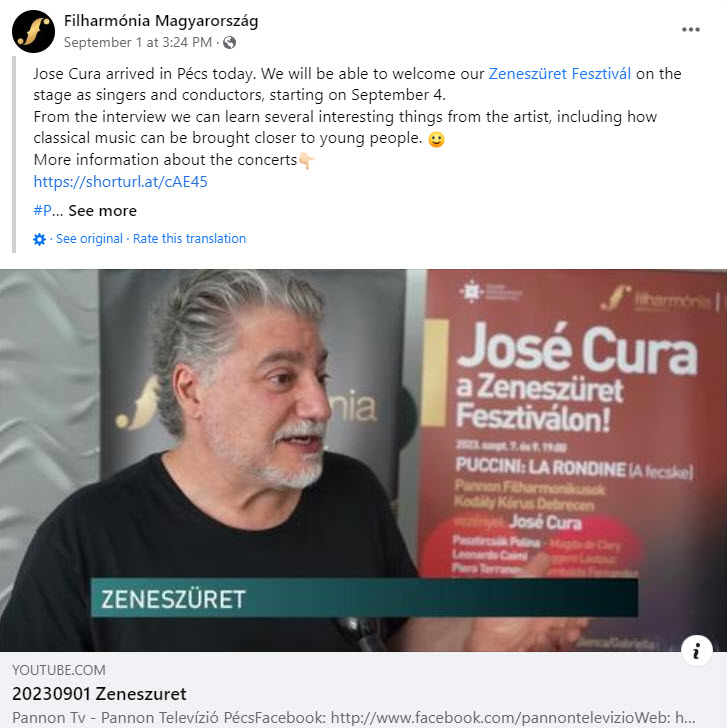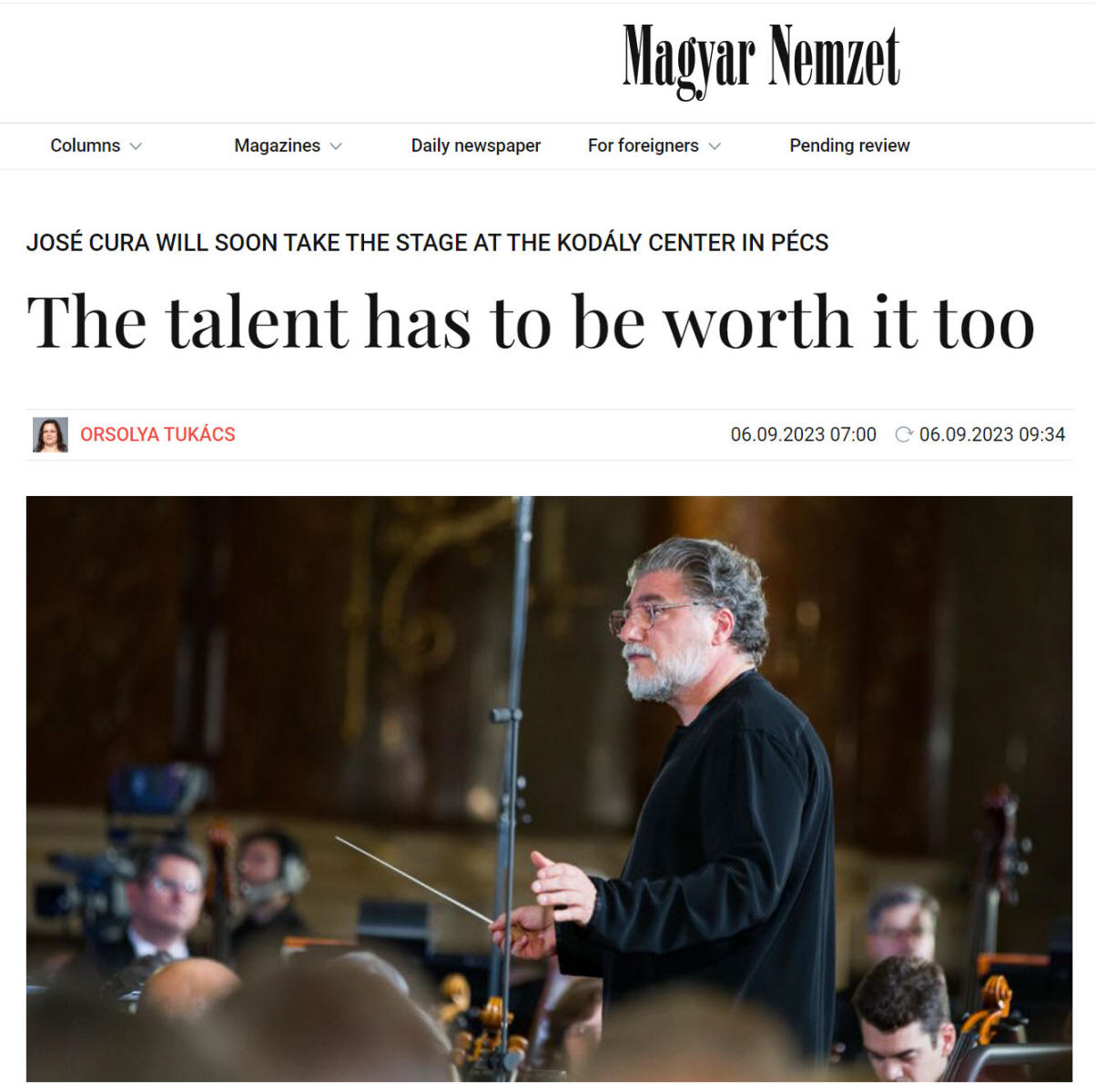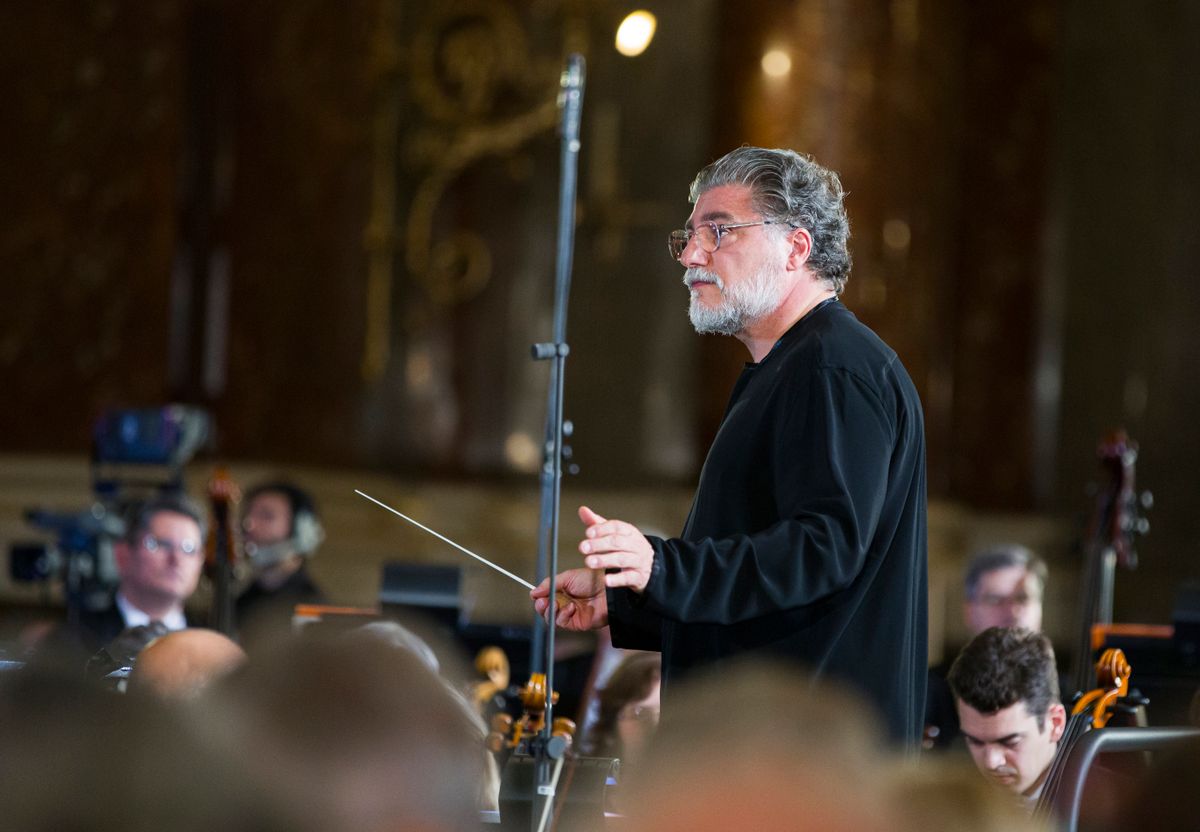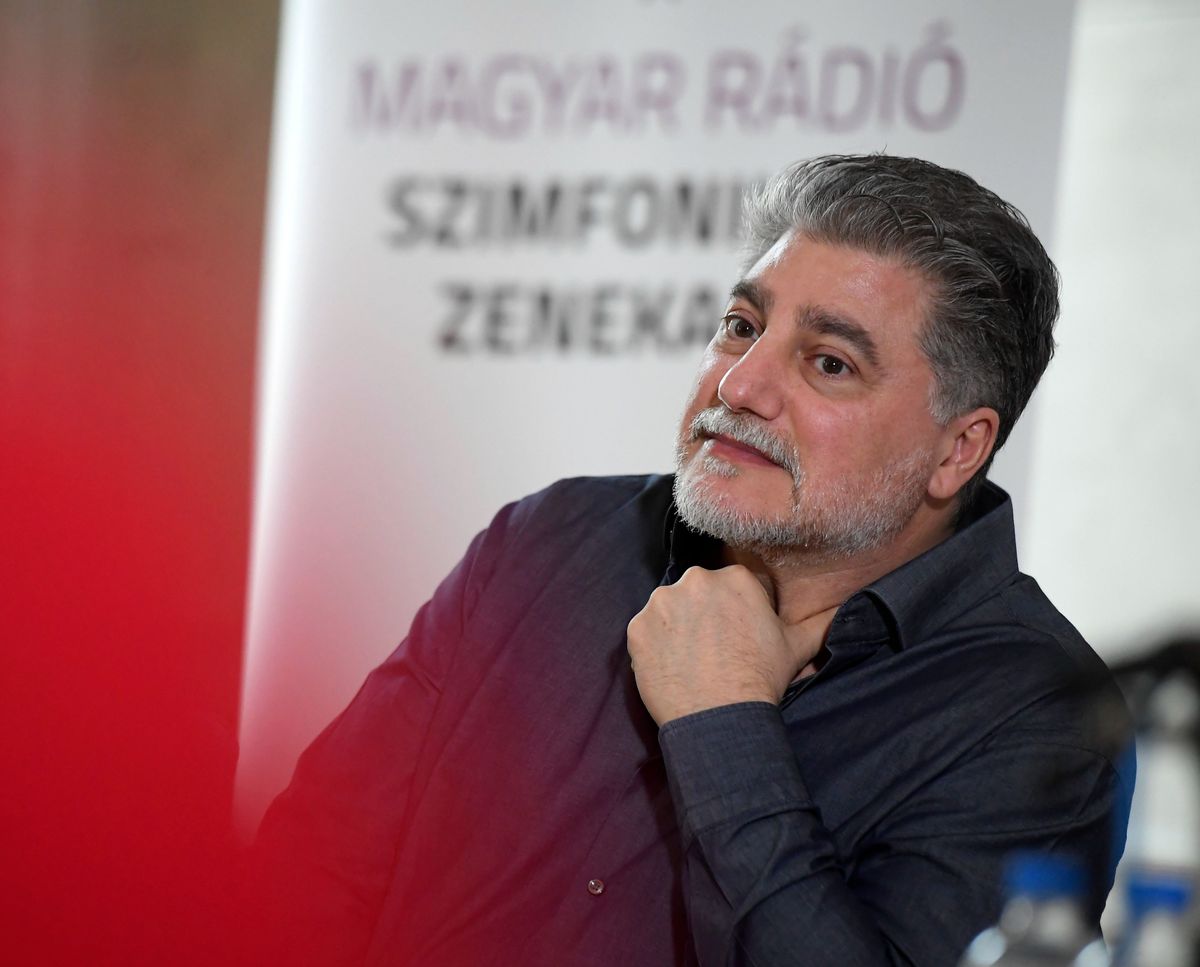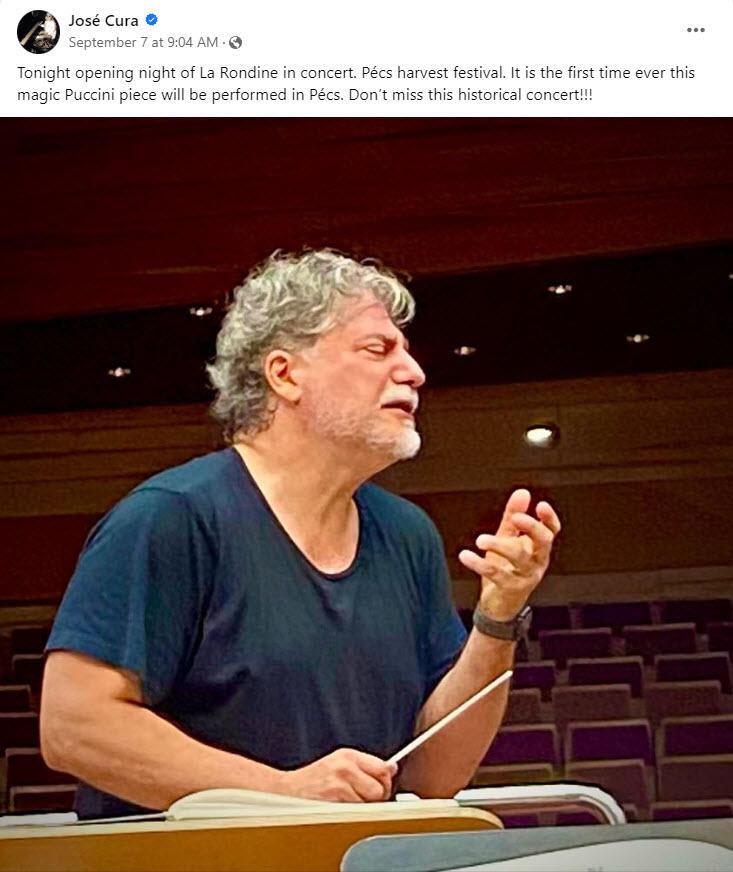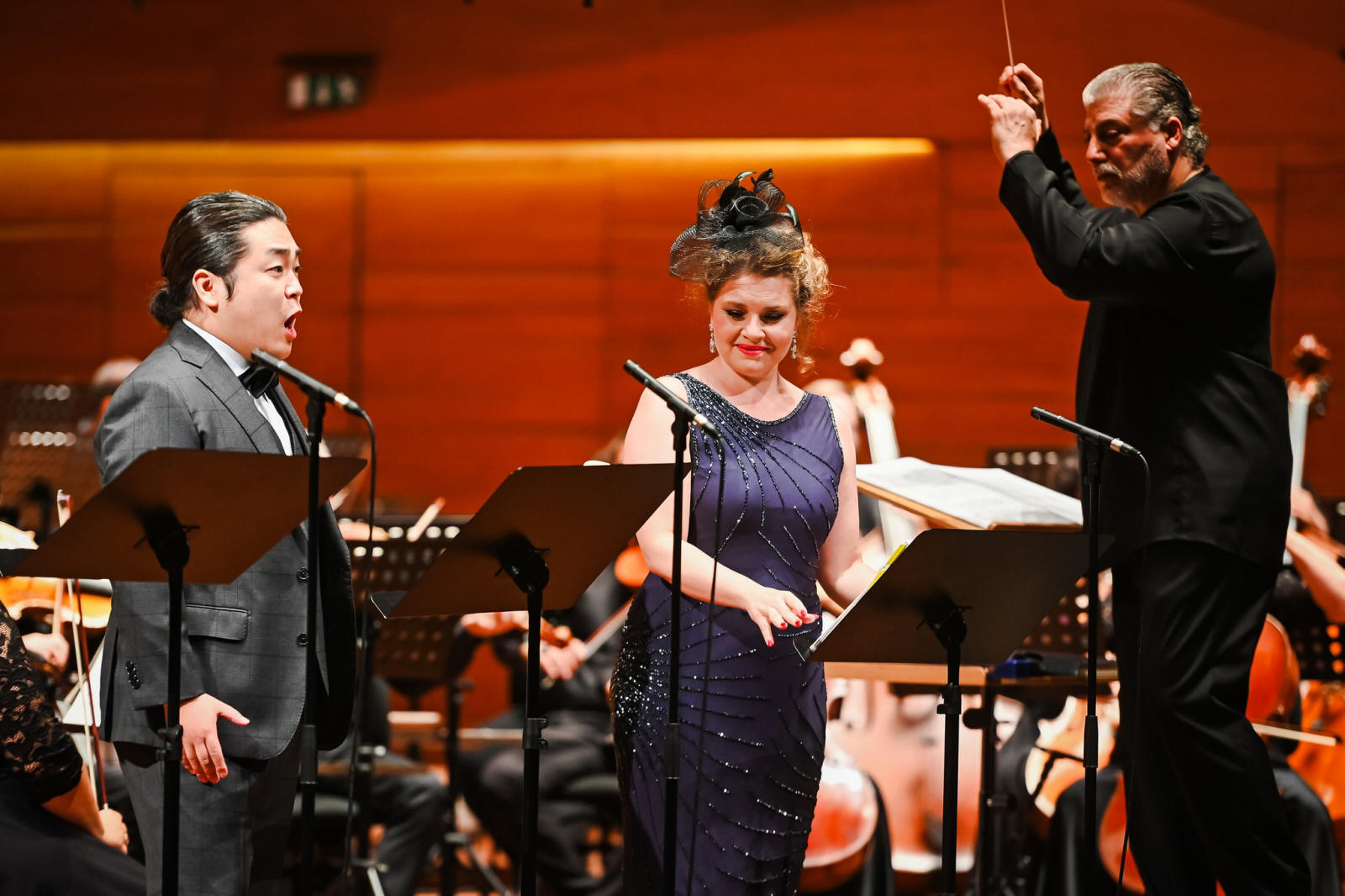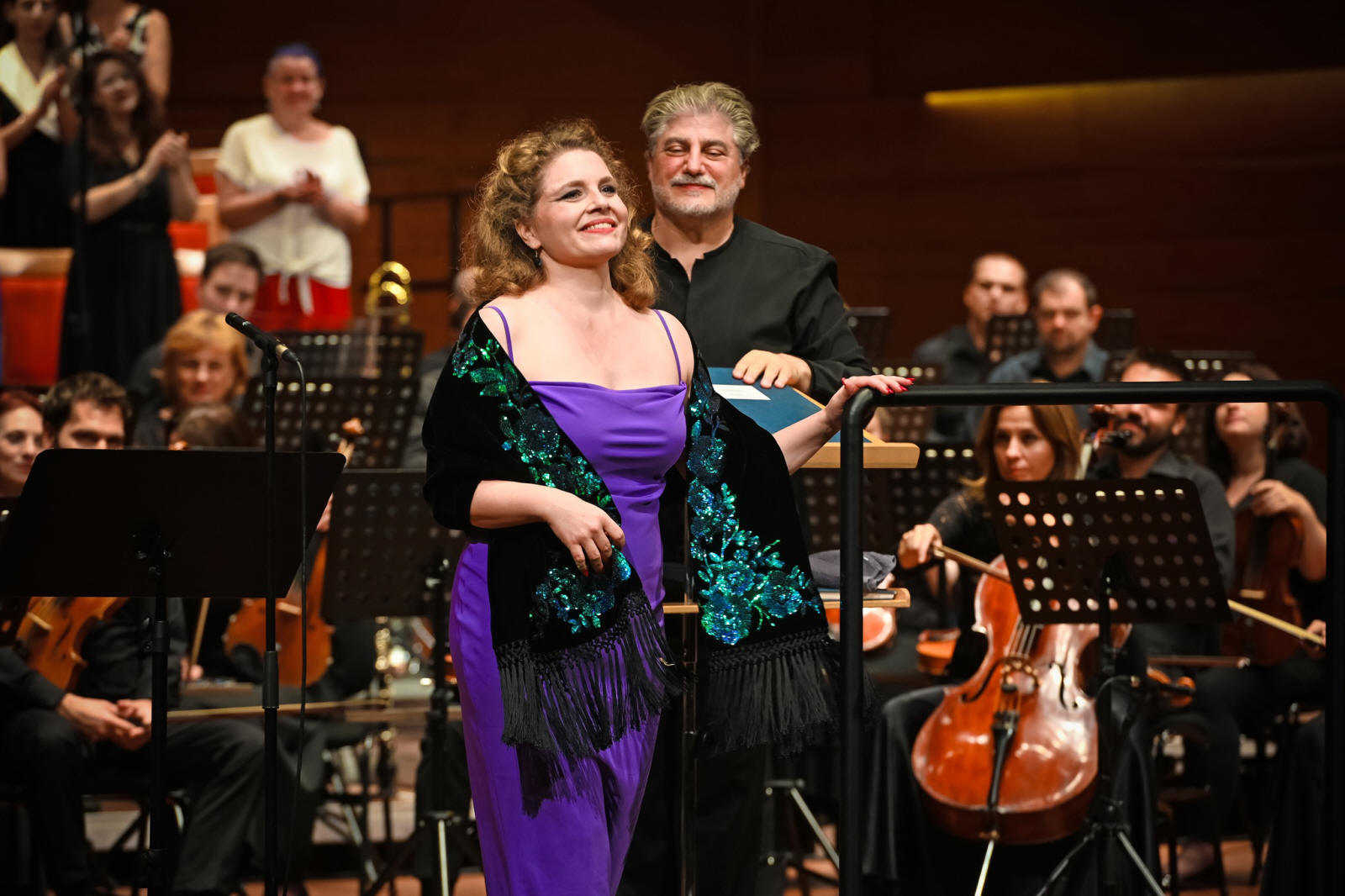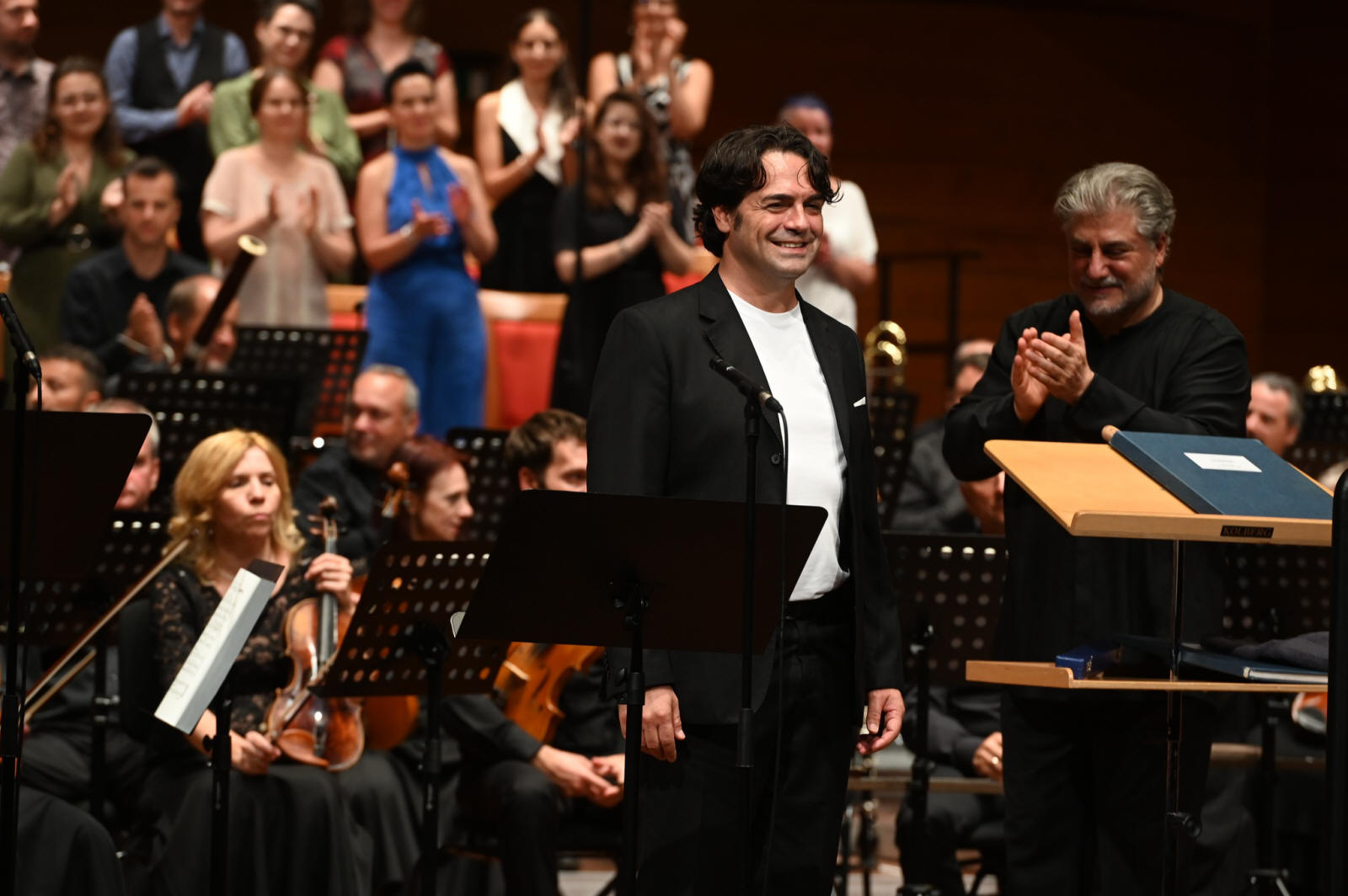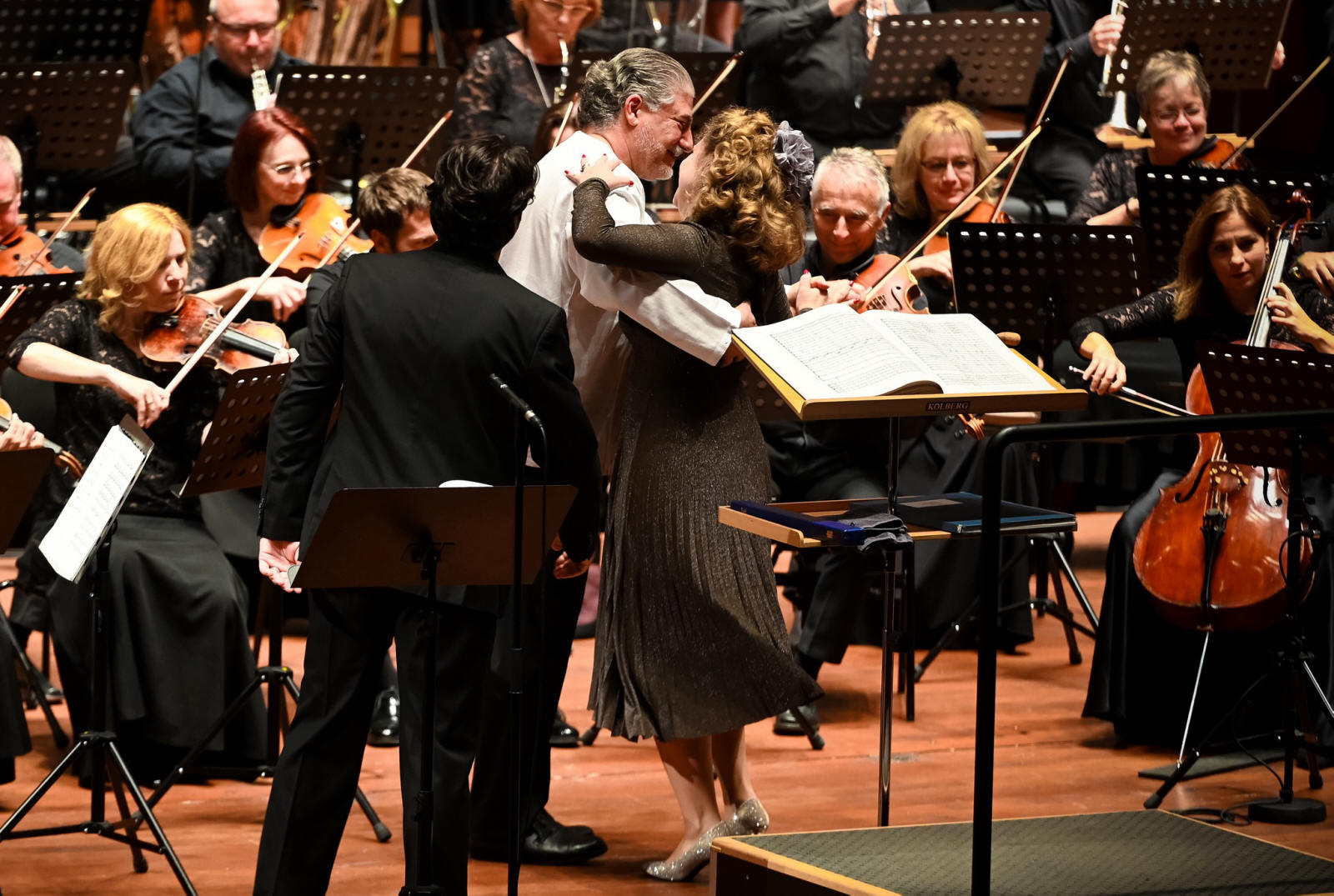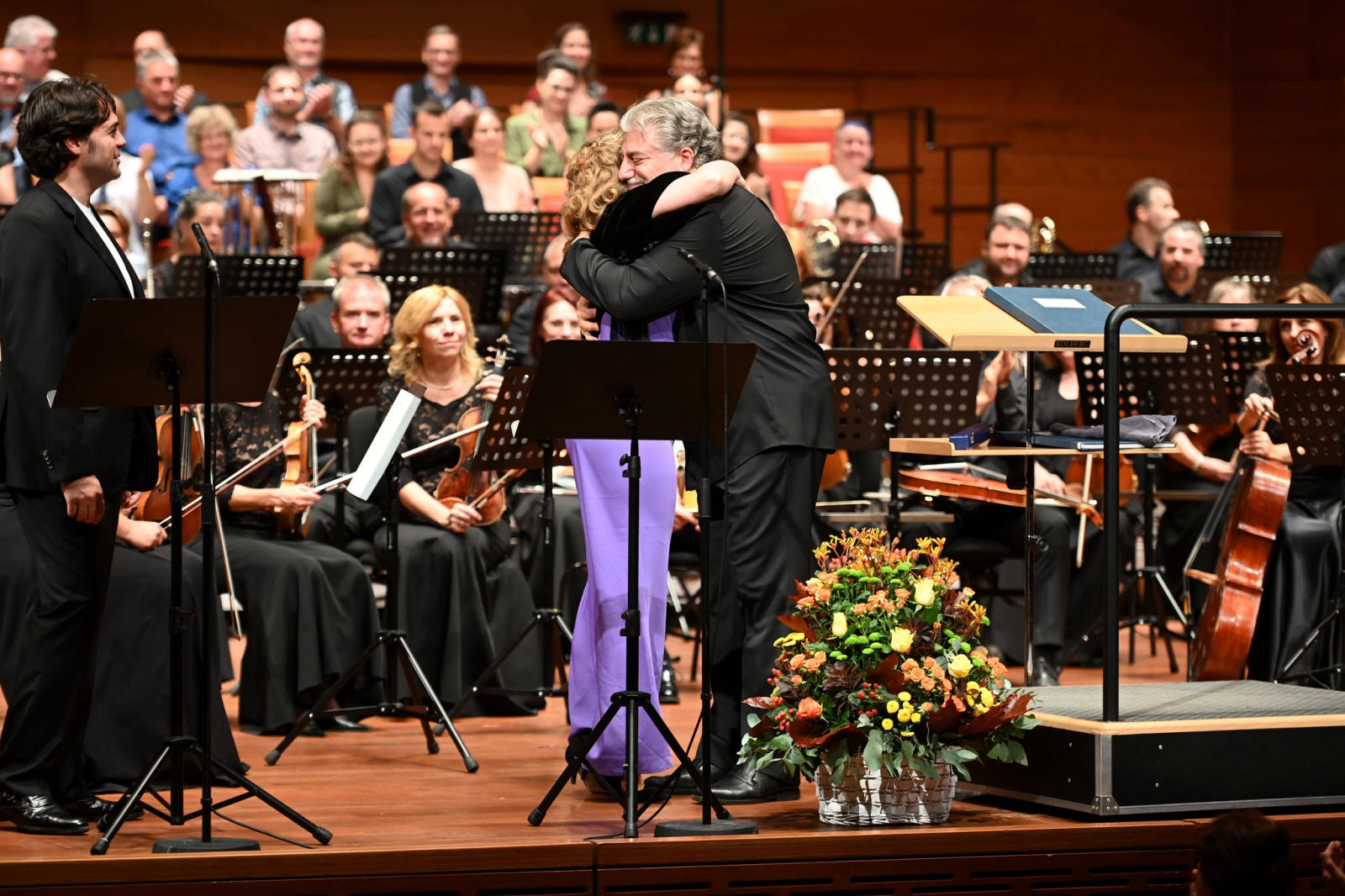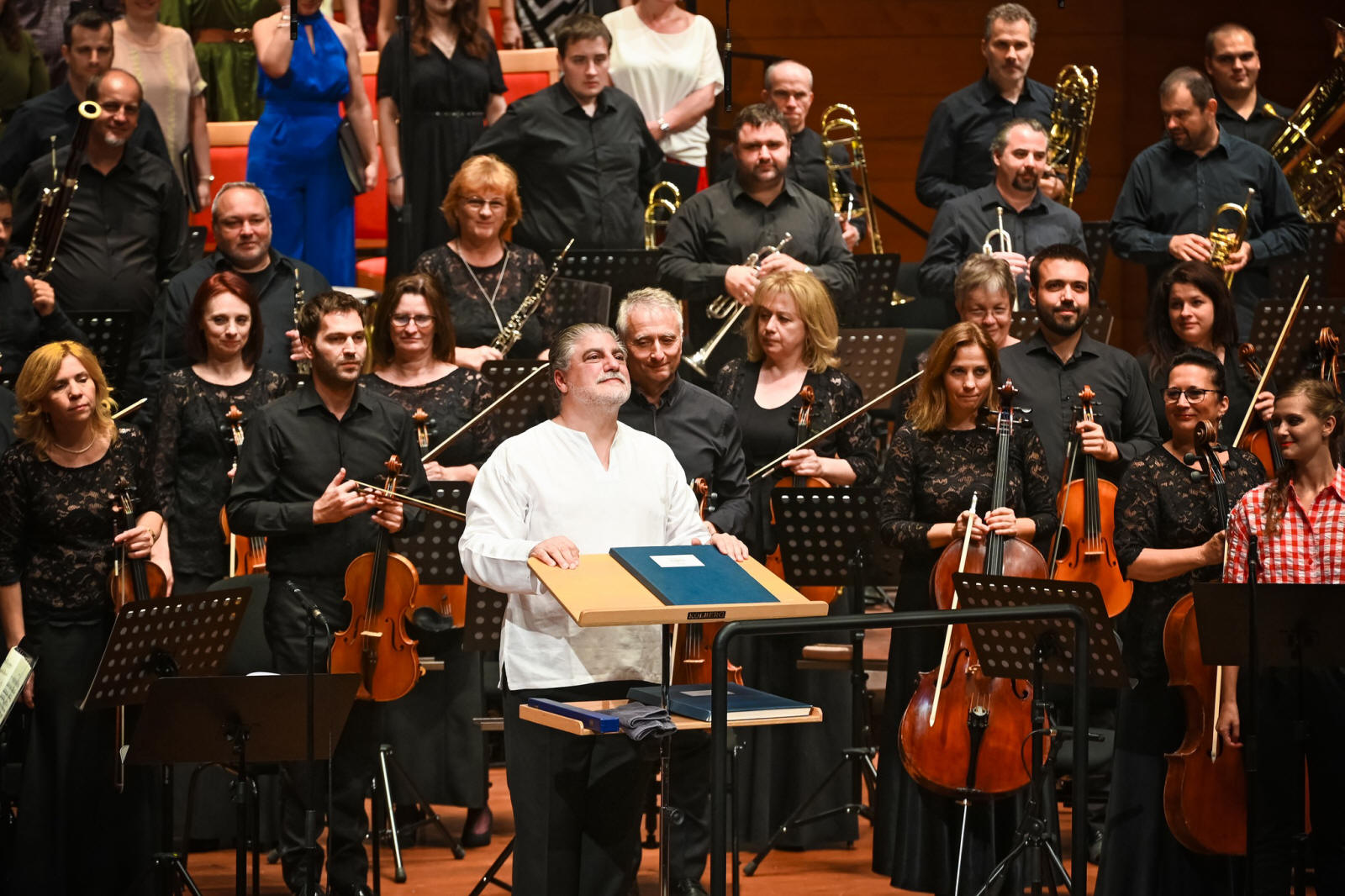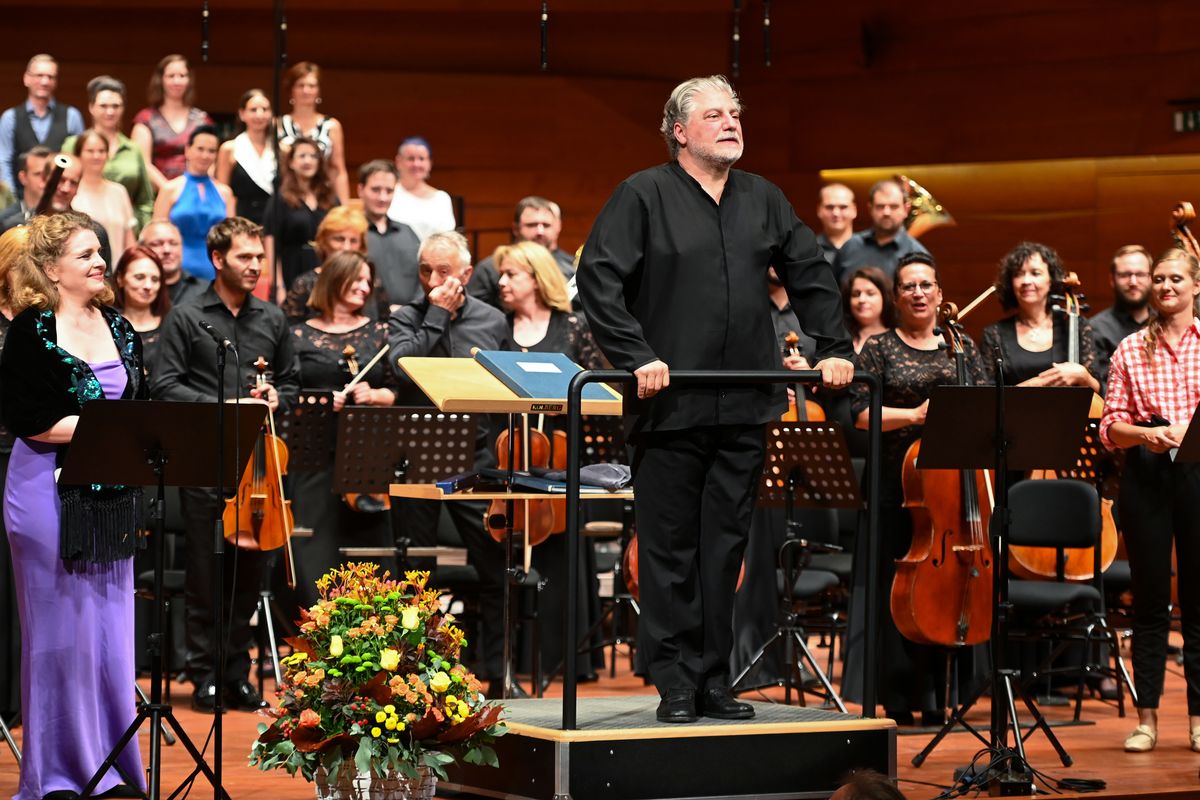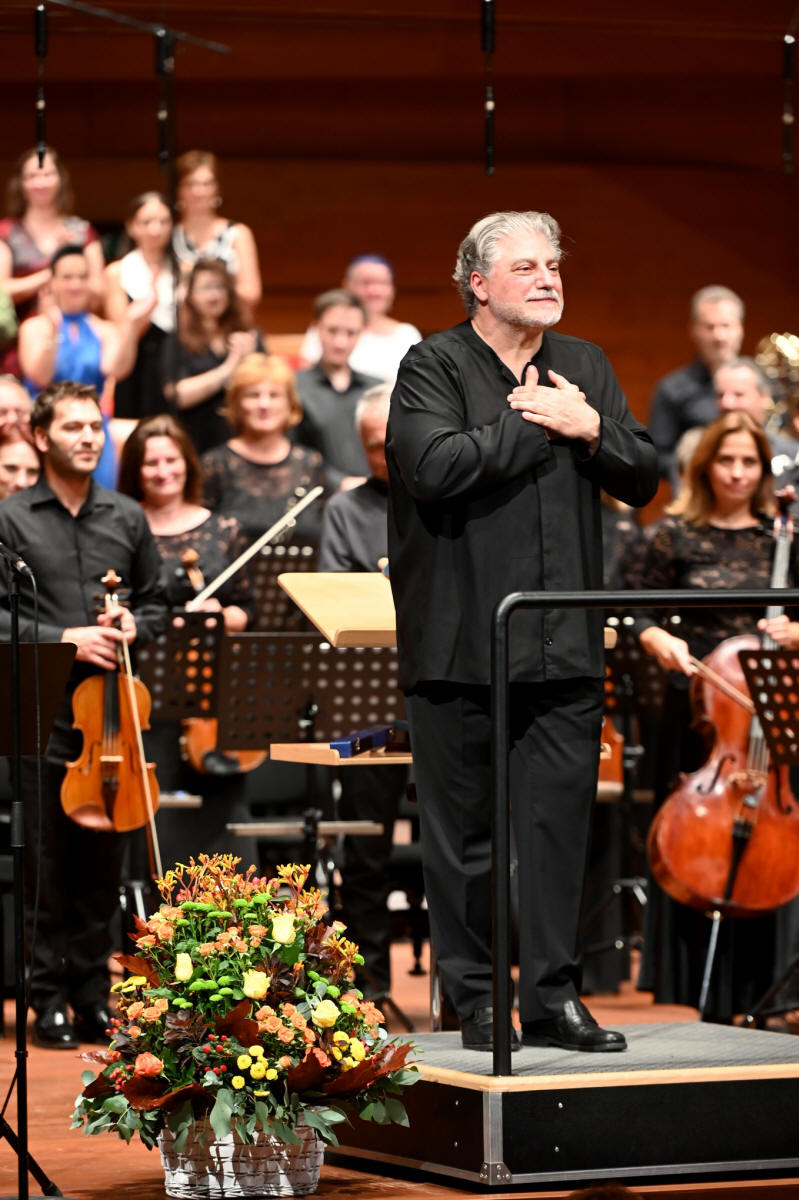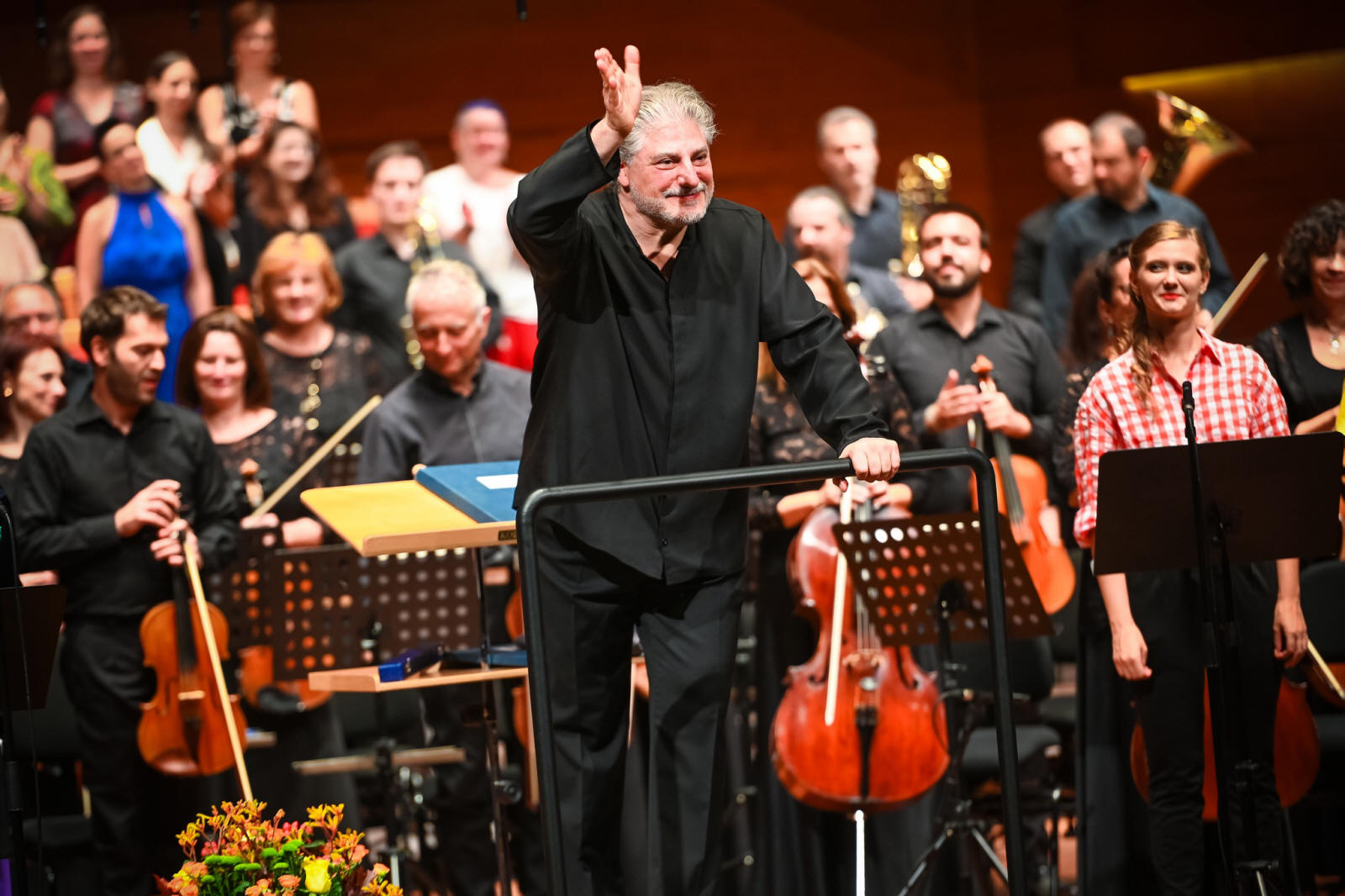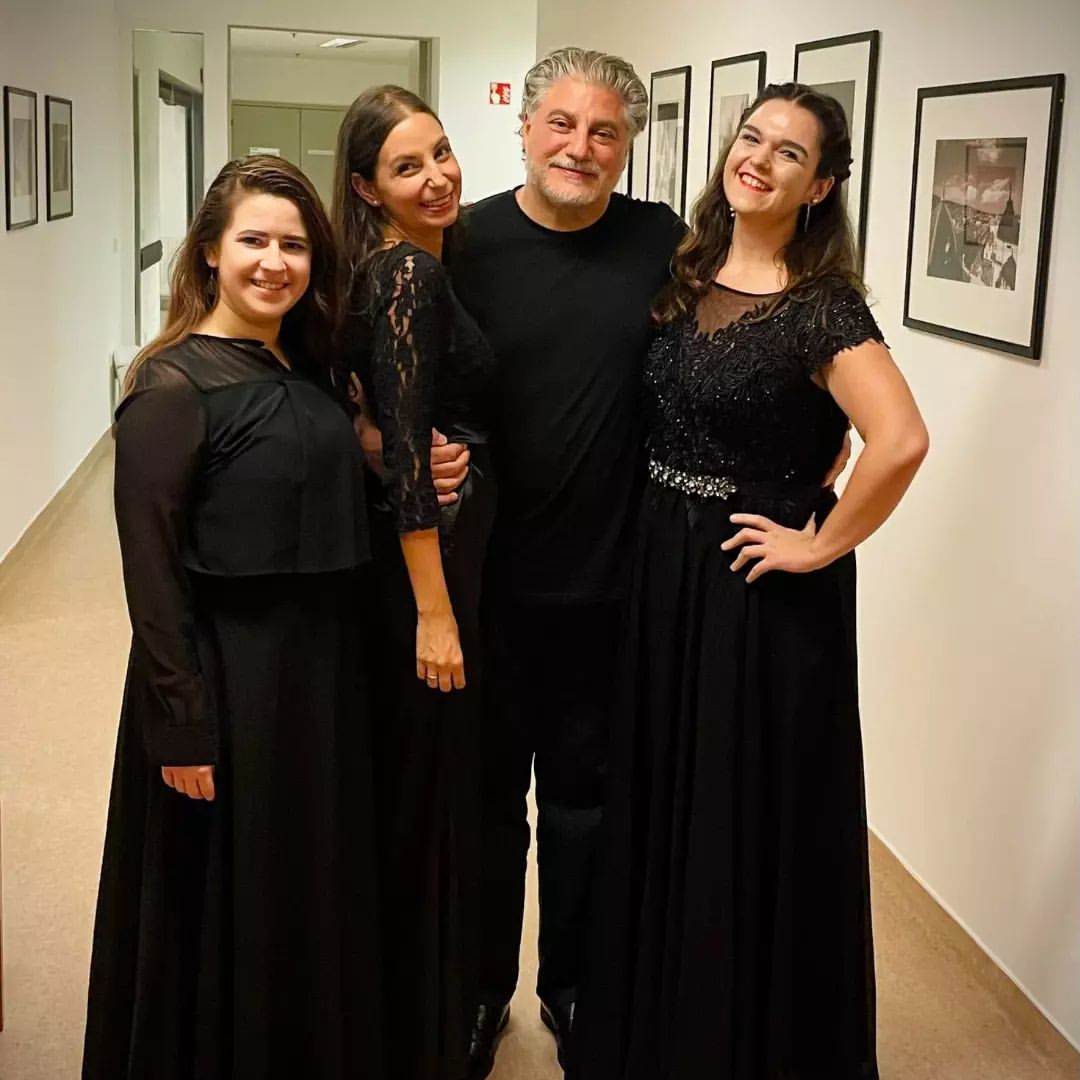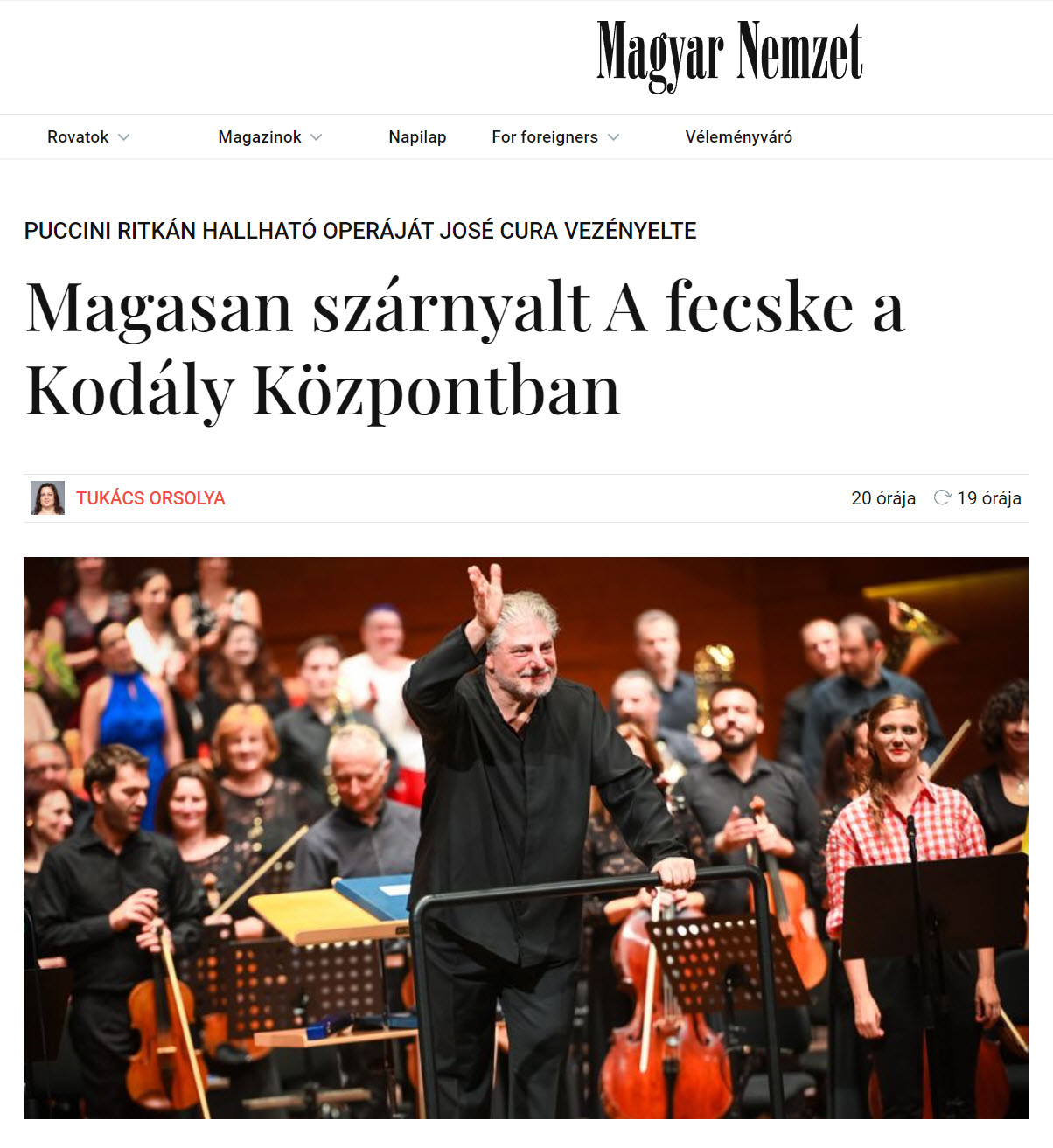Cura Raro
Operas done early, operas done once, operas done sparingly, operas done in various roles -- we explore special operatic performance by José Cura
La Rondine
Tenor - 1994; Conductor - 2009; Director, stage design, conductor - 2012
La rondine, Nancy (director / set designer /conductor), May 2012: ‘Apart from Le Villi and Edgar, early works, La Rondine remains the least known and least performed operas from the fully mature Giacomo Puccini, yet this was the work chosen by the famous tenor José Cura to lead, both as director and conductor, a troupe of young artists he had the opportunity to work with in the master classes he gives each year in Lorraine at the invitation of the Association Nancy Passion Opera, the co-producer of the show. In charge of all aspects of the performance, José Cura was also in charge of the staging, the sets, and the costumes. His work was most respectable and even appealing, moving the action from the Second Empire to the Fifties and extending the metaphor of the bird cage, where the swallow (la Rondine) will return to self-imposed confinement. It was not wildly original but what else can be done with a libretto that is rather weak and devoid of dramatic action? The direction of the actors led to a perfect naturalness; the costumes were elegant; and the sets, colorful and well lit, constantly appealed to the eye. But what was most seductive about this Rondine was the conducting of this very same José Cura. He lovingly supported his singers by making sure never to drown them out. He supported them without ever lacking refinement, without a single uncalled-for affectation, without a single wrongly-placed emphasis. This was a veritable jewel of balance and subtlety, the Nancy Symphonic and Opera Orchestra visibly under his spell and rich in finesse, with the Chorus of the Opera National de Lorraine perfectly in tune.’ Resmusica, 11 May 2012La rondine, Nancy (director / set designer /conductor), May 2012: ‘Puccini's La Rondine flew northeast to the Opéra National de Lorraine in Nancy for a new production conducted, designed and produced by tenor José Cura. Cura is a well-known pedagogic figure here and although it was an undoubted risk to allow the tenor a free hand in all aspects of the production, the exercise produced a highly enjoyable performance of Puccini's underrated score. Cura was eager to reveal the seriousness of purpose behind Puccini's work. The composer's well-known penchant for exploring cruelty and female suffering is well served. Magda longs for fulfilled romantic love with Ruggero, but she painfully abandons the possibility out of shame for her past life as a courtesan, as well as the lingering doubt that she may still hanker after the security of her pampered life with sugar-daddy Rambaldo. This complex psychological tussle was directed with some skill by Cura, who chose to set the action in designs and costumes of a post-World War II period. Act I looked like the atrium of a four-star hotel, Chez Bullier featured bistro tables and a Chagall-style backdrop of the Eiffel Tower, and the final act was a Côte d'Azur seaside setting, complete with sand castles and deckchairs. Puccini's much-revised ending was cleverly staged by the tenor. As Magda rejected her lover to return to her former life as a kept woman, the marquee on the beach collapsed to reveal Rambaldo, Lisette and Prunier waiting to welcome her back to the stultifying atmosphere of her loveless relationship; Magda fainted, and her inner life died. Cura's conducting of orchestra and chorus was discreet and workmanlike on May 6, registering as well paced and singer-friendly ….’ Opera News, August 2012
La rondine, Nancy (director / set designer /conductor), May 2012:
‘The series of performances of La Rondine at the National Opera of Lorrain is the culmination of a project that started five years ago with master classes led by José Cura. From among those singers was then formed a troupe that would perform in Puccini operatic comedy, direct and conducted by the famous Argentine tenor. [T]he result proved to be good performance. Admittedly this Puccini work with its lightness and chatter, cannot measure up to Madame Butterfly or Tosca…but the ending, with the heroine returning to her golden prison as the swallow returns to nest – remember the French translation of the title-- reveals an effective intelligence in staging the scene, testifying to a skillful know-how in distilling dramatic tension. In caring for the vocal platform, José Cura’s conducting breathed with the confidence that seemed connected to the musician of the Orchestre Symphonique de Nancy and confirmed the relevance of the project that he carried, bringing credit to the institution in Lorraine.’ ConcertClassic, 16 May 2012La rondine, Nancy (director / set designer /conductor), May 2012: 'A successful double challenge for José Cura as both conductor and director for La rondine at Opéra National de Lorraine. First, the conductor confirms his affinity with the Puccini repertoire, already in evidence during the master classes he conducted between 2007 and 2010 on the initiative of the Nancy Opera Passion Association, a valuable supporter of this new production. Flexible, lyrical, nuanced, as attentive to details as much as the overall architecture, he accompanies the young singers gathered on the stage with a vigilance and regard for their difficulties which, from beginning to end, commanding admiration and respect. Second, the director, also in charge of sets and costumes, demonstrates wisdom and restraint, without trying to force the work to say more than it can. The transposition of the action in the 1950s works without gaps: an elegant glass loft with black piano, deep sofas and small tables in Act I; outdoor dancing, with clean lines, in Act II; sun-drenched sandy beach, with deckchairs, parasols and a vast white tent, in Act III. The direction of actors is simple, fluid, respectful of the libretto, with the best idea of the staging being the dazzling final image. The canvas covering the tent suddenly collapses, revealing a decor identical to that of Act I, with the same characters gathered inside. Magda enters and, understanding that everything will start again as before her idyll with Ruggero, collapses (passed out? dead?).' Opera, 12 June 2012, Richard Manet
La rondine, Nancy (director / set designer /conductor), May 2012: ‘In designing the staging, the sets, and the costumes, the Argentine tenor José Cura (who also conducted) moves the action to a century later than that suggested by the book, to the 1950s. The work was a fair presentation, limited to illustrating the libretto with simplicity and even a touch of naivety. He was a better conductor, infusing the magnificent score was great emotion while bringing order in the confrontation of the various aesthetics. The tremendous ovation he received during curtain call was undoubtedly for this talent….’ Concertonet

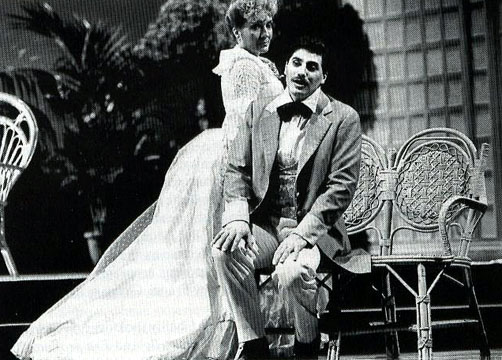
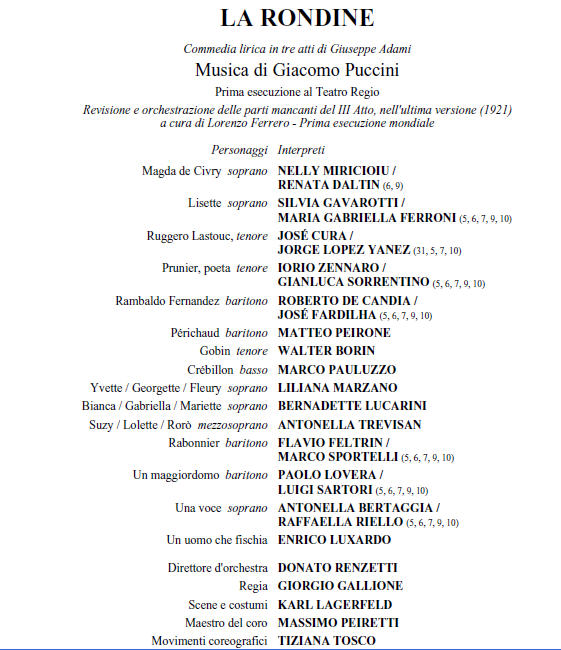
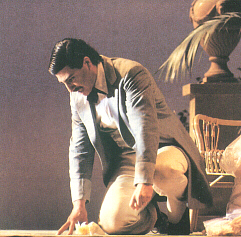
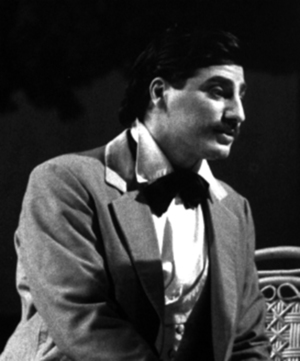
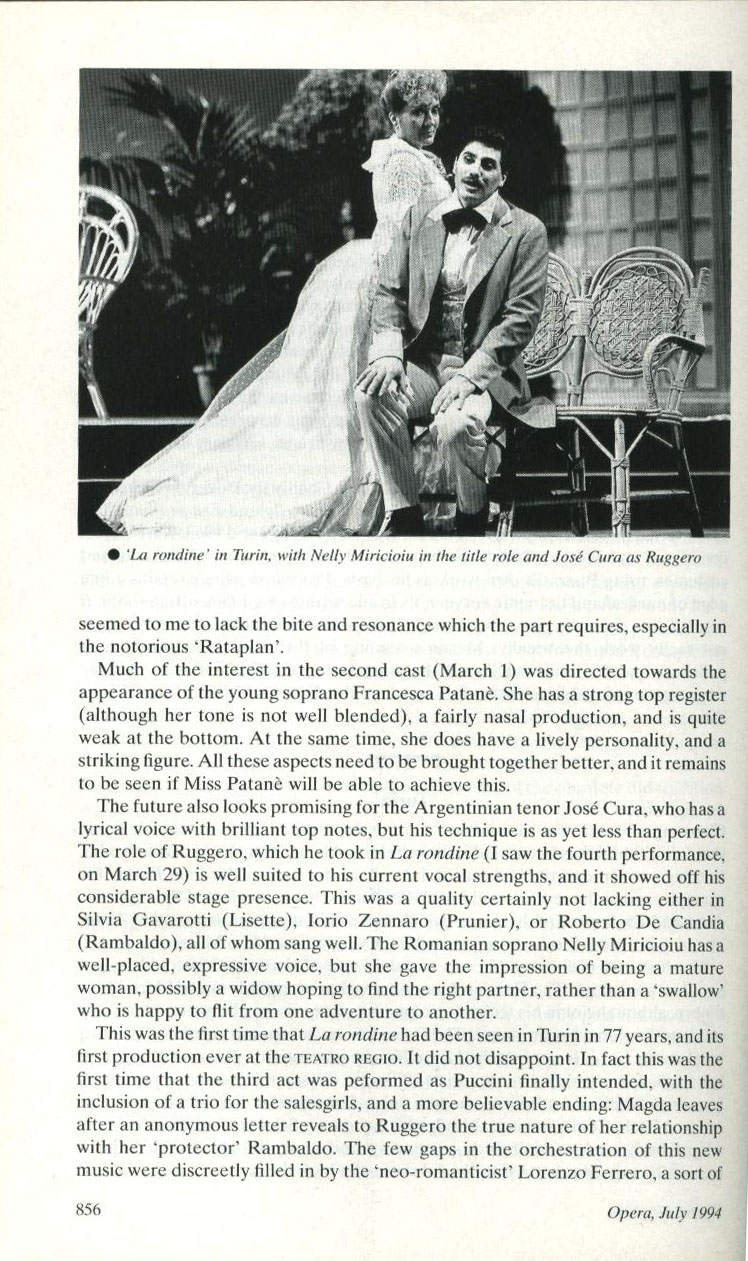
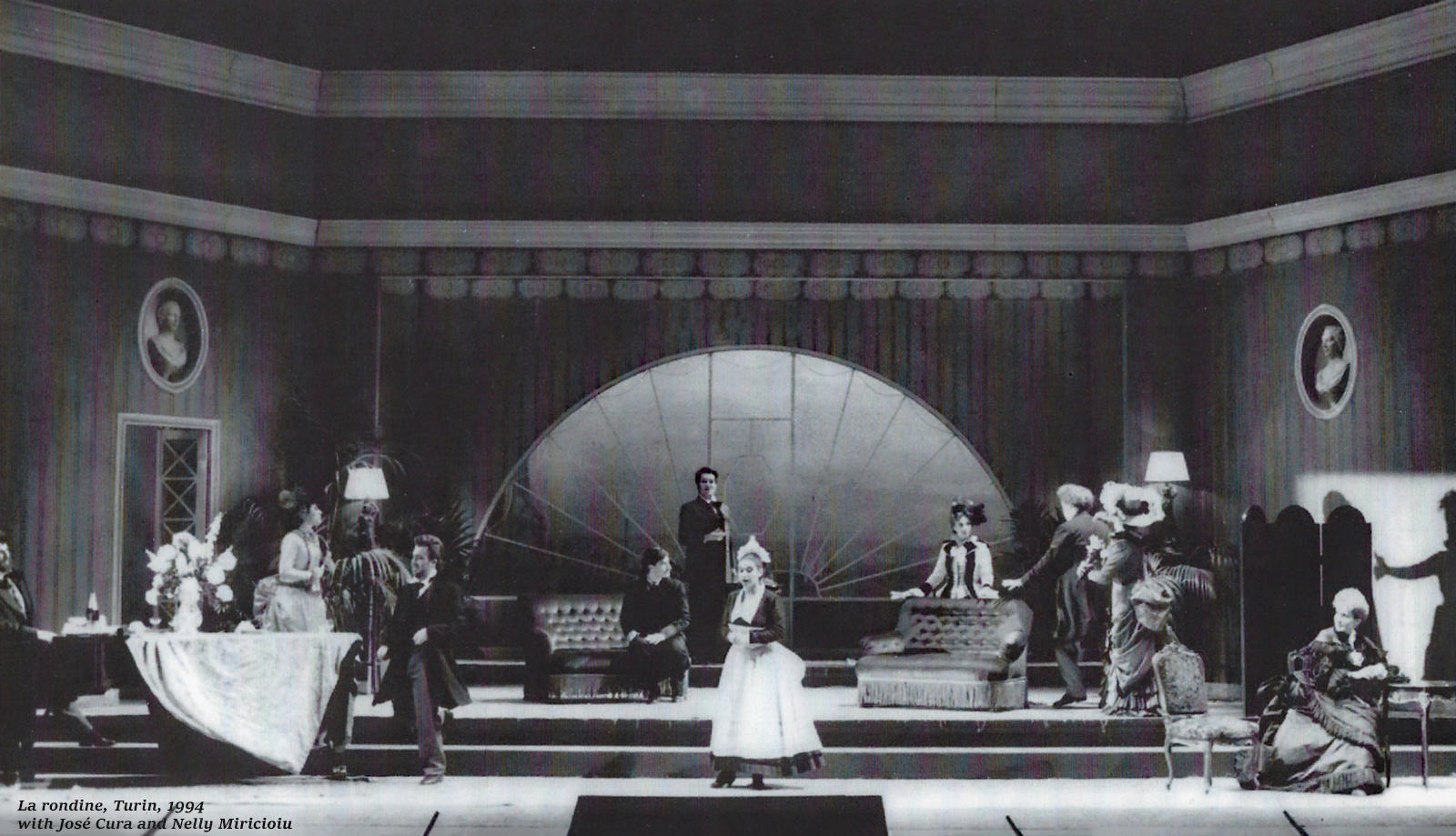
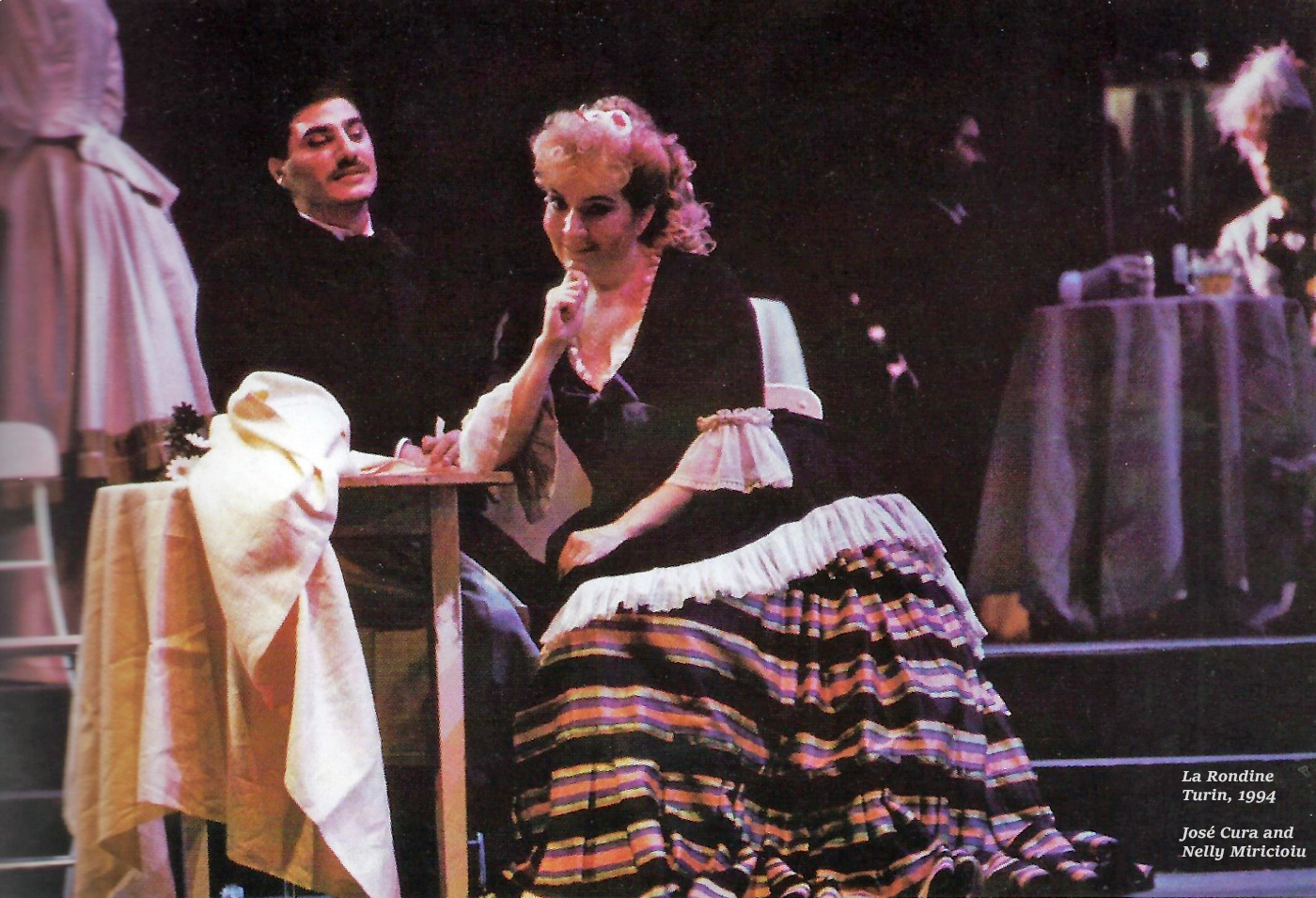
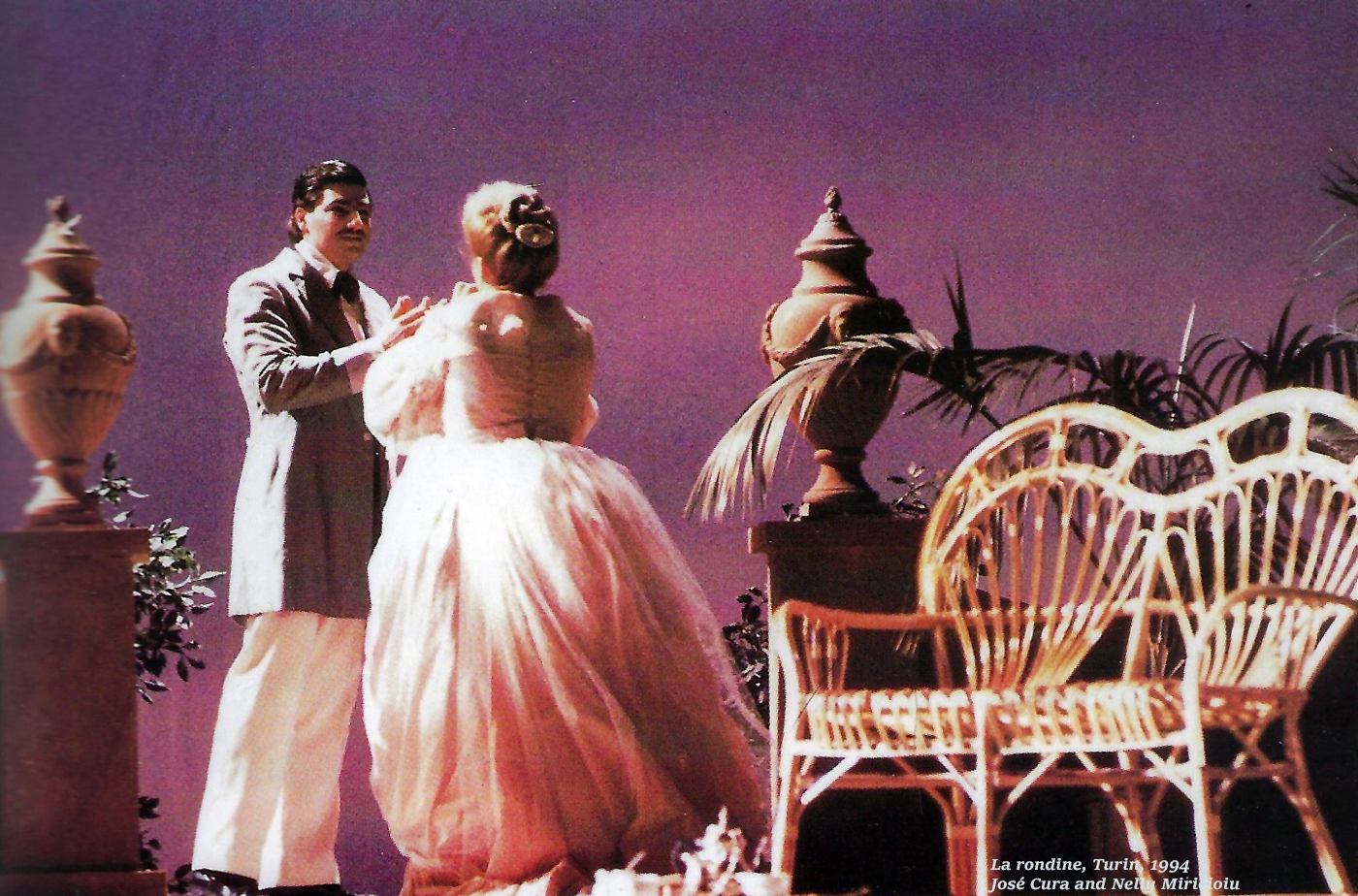
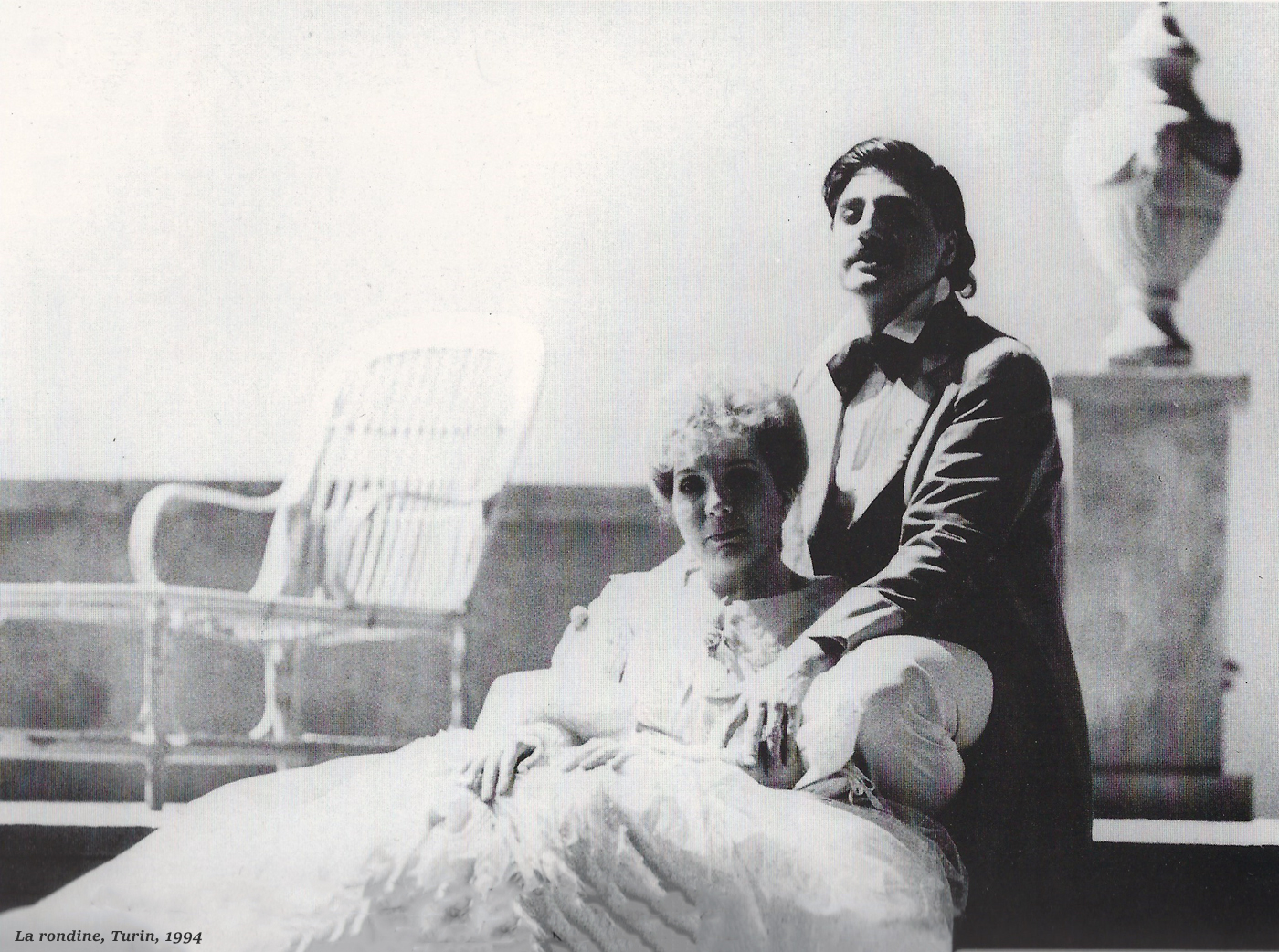
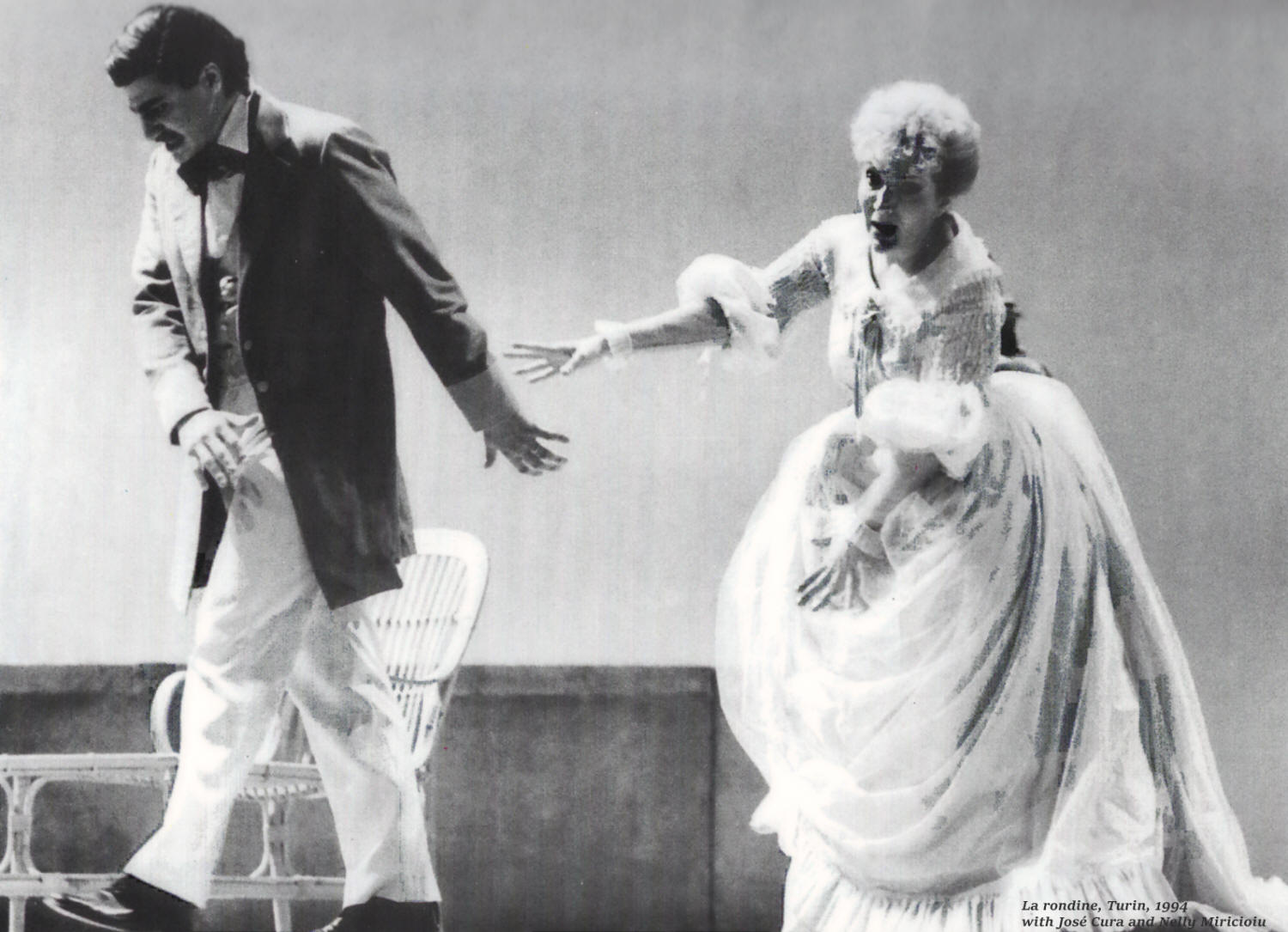
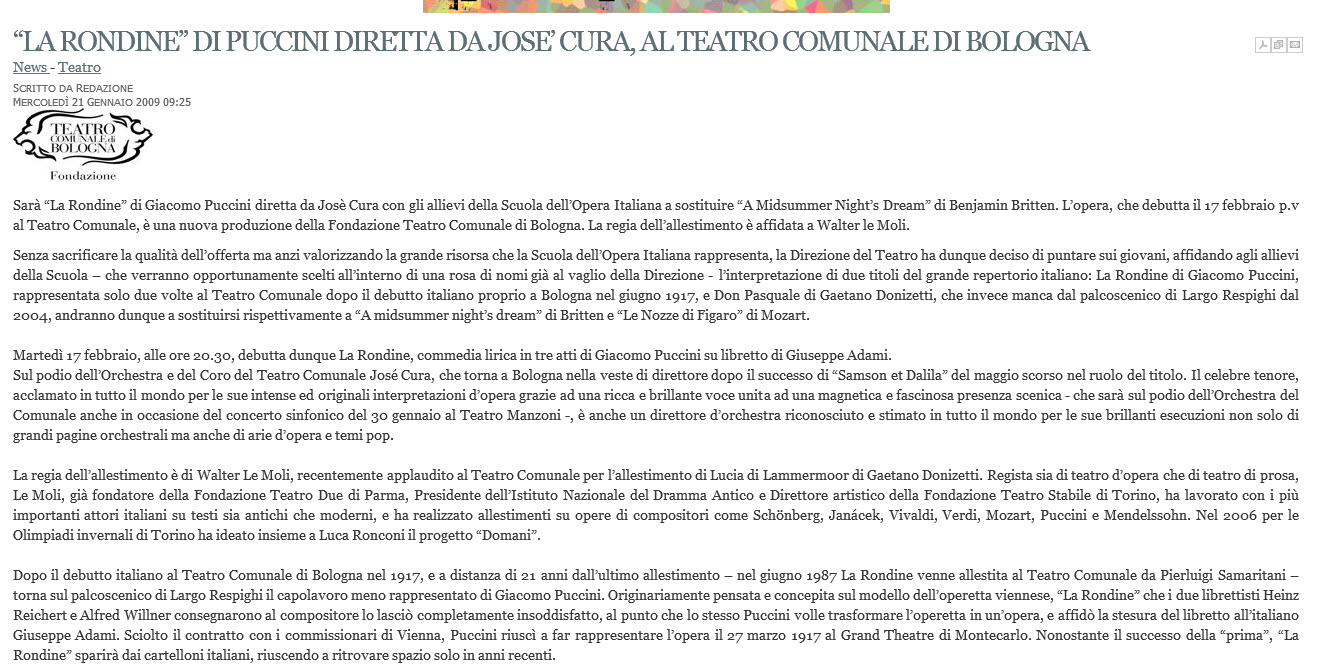
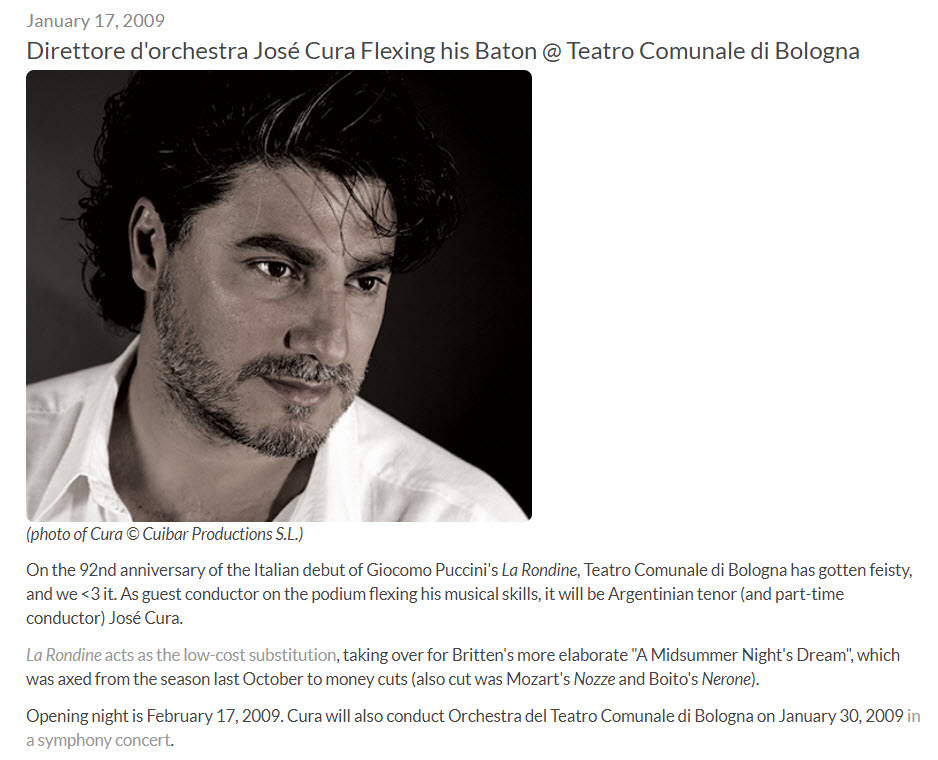
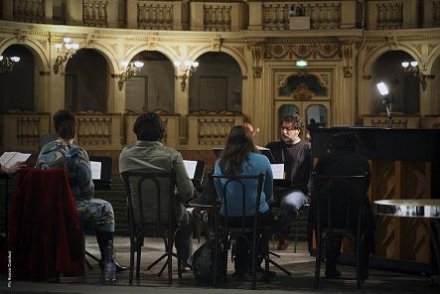
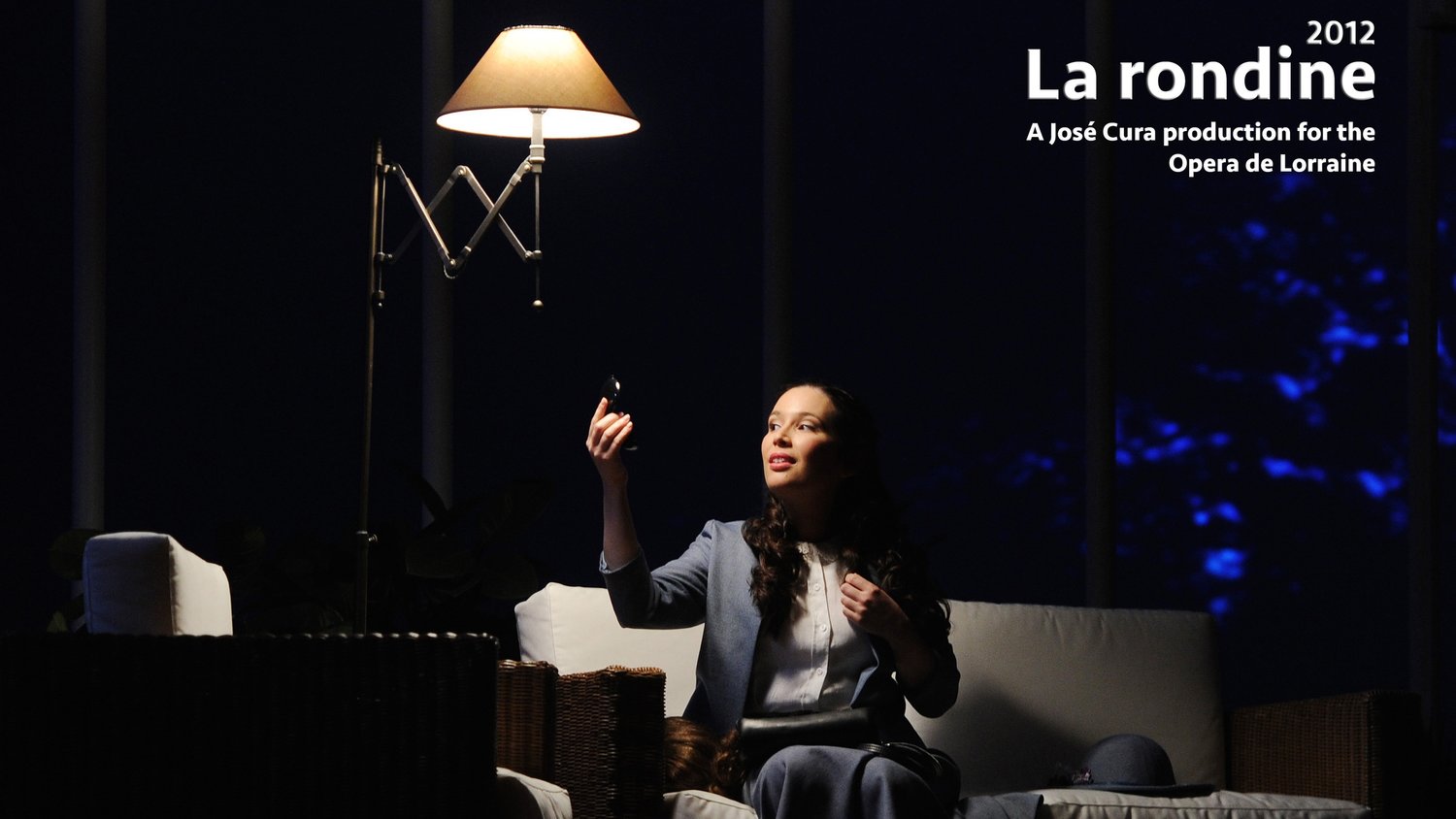



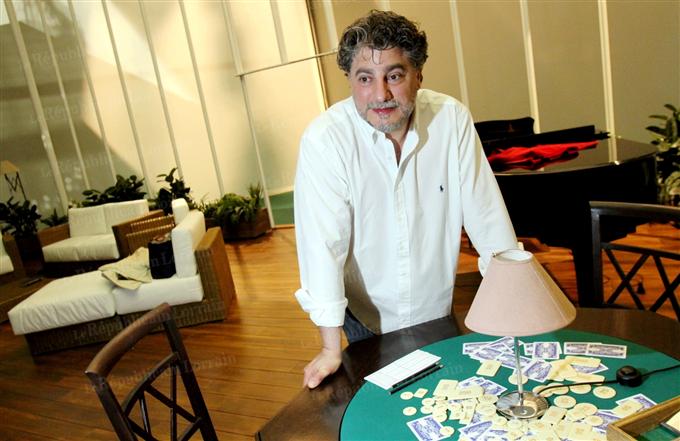
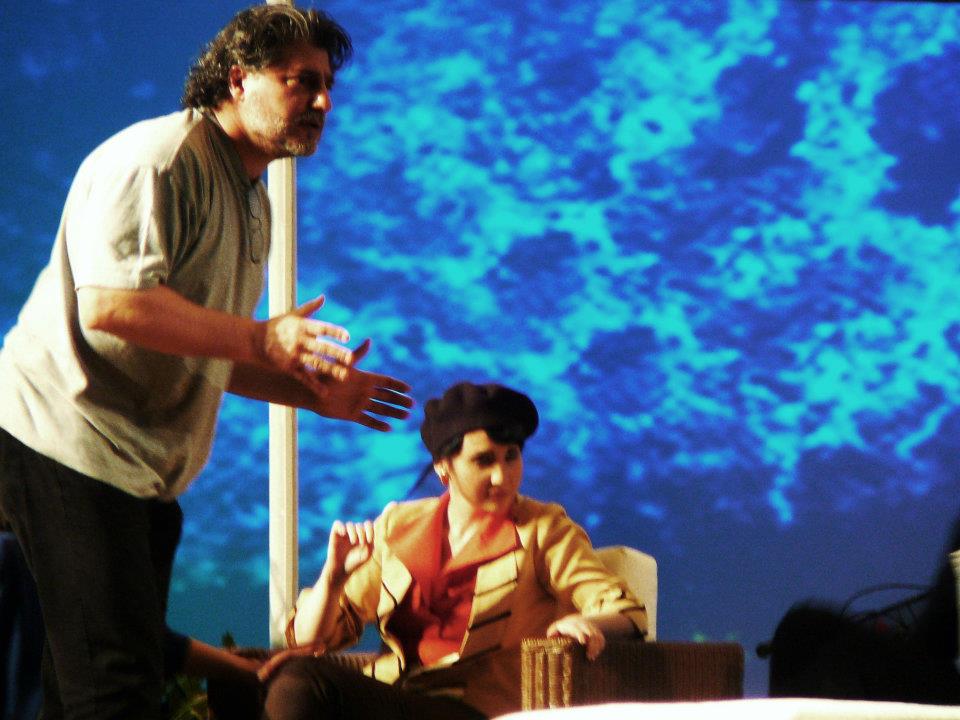

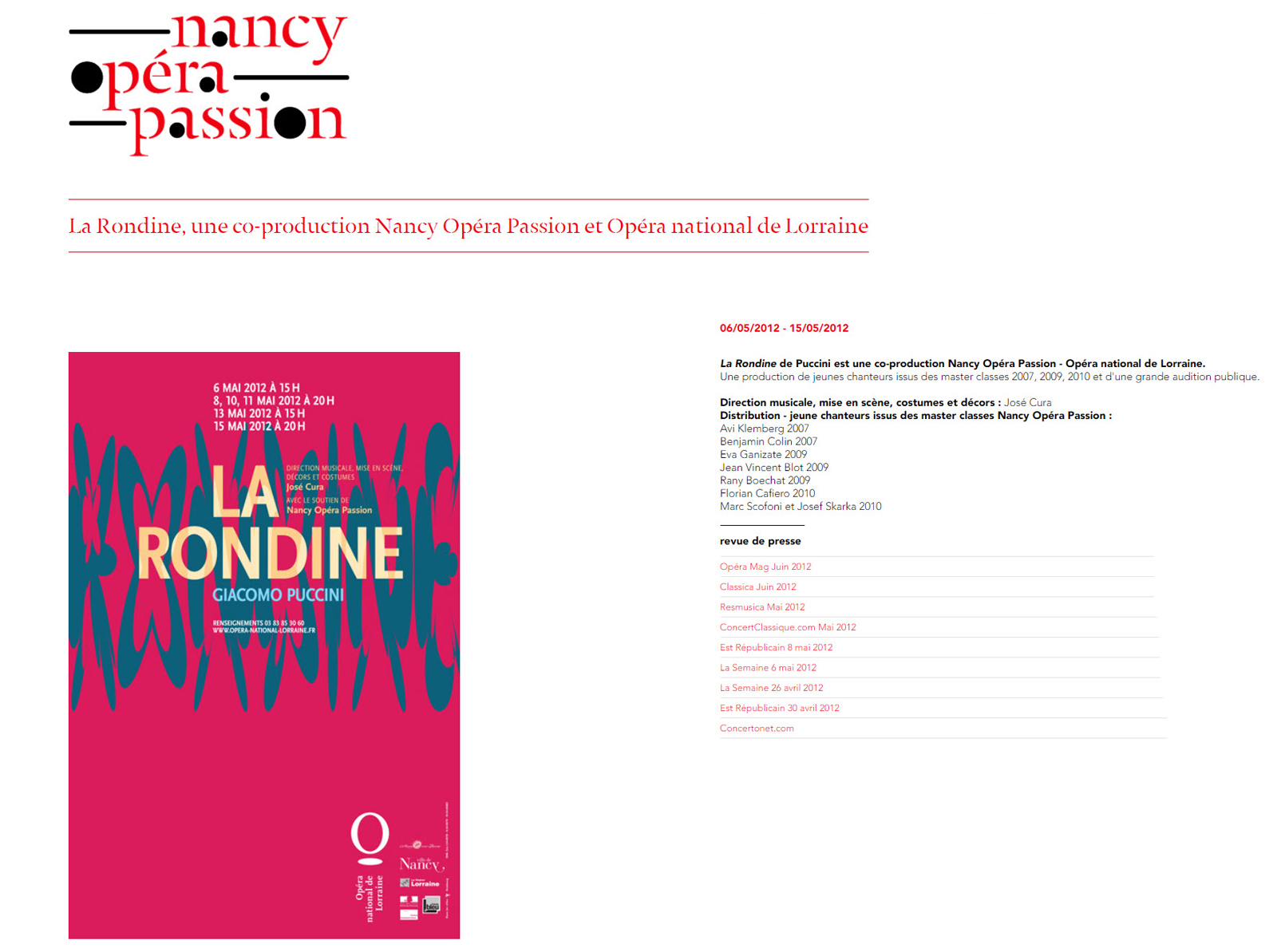
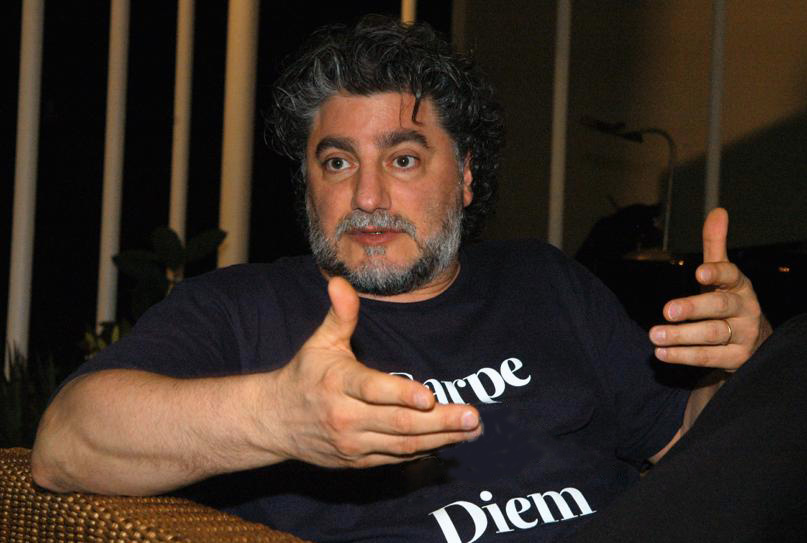
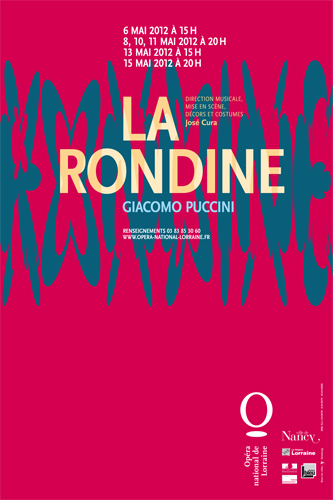
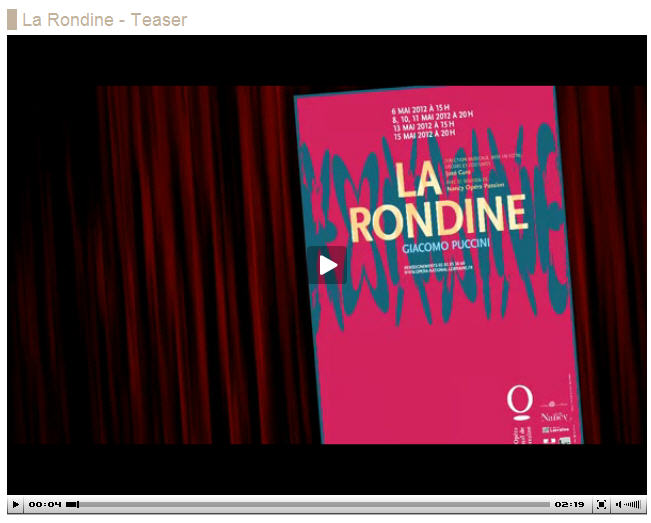

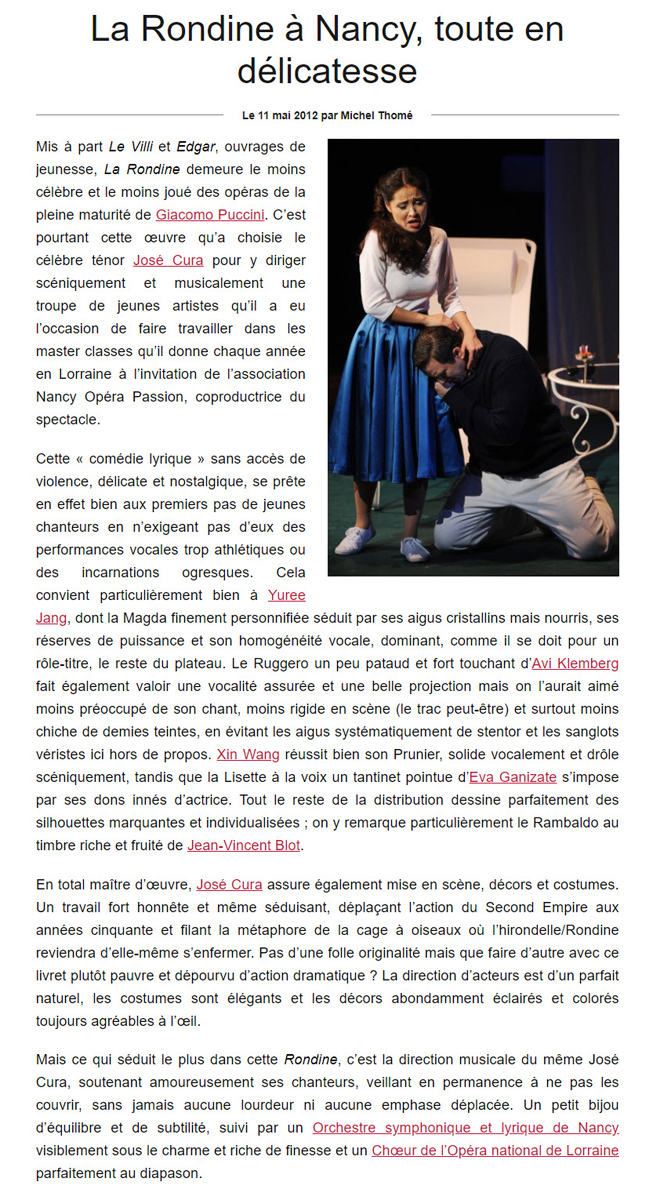

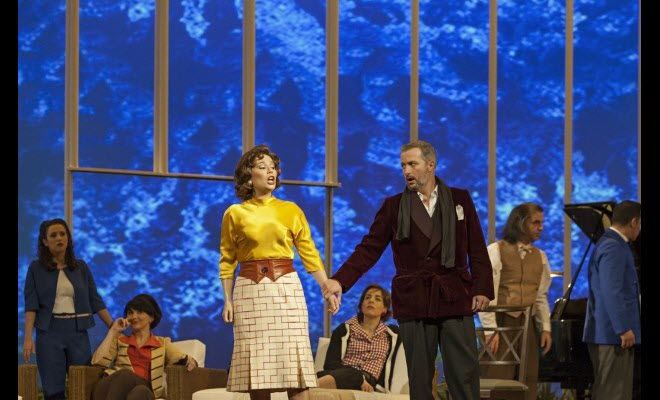
.jpg)
.jpg)
.jpg)
.jpg)
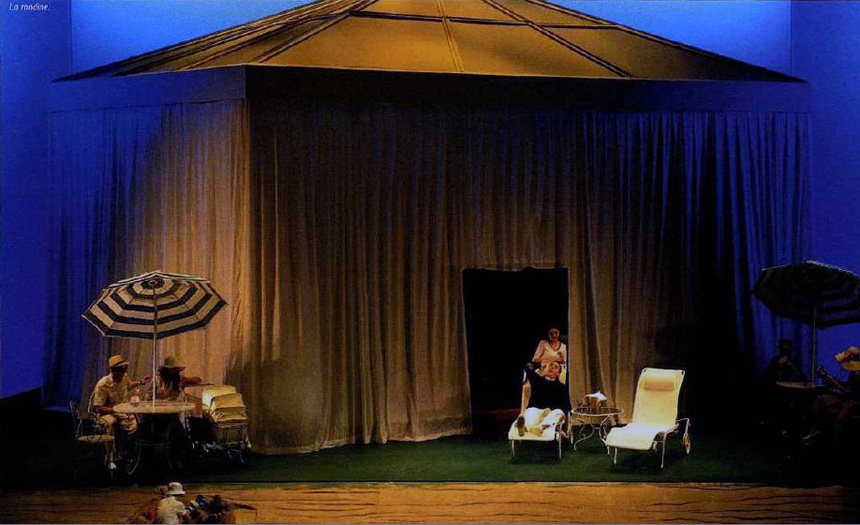
.jpg)
